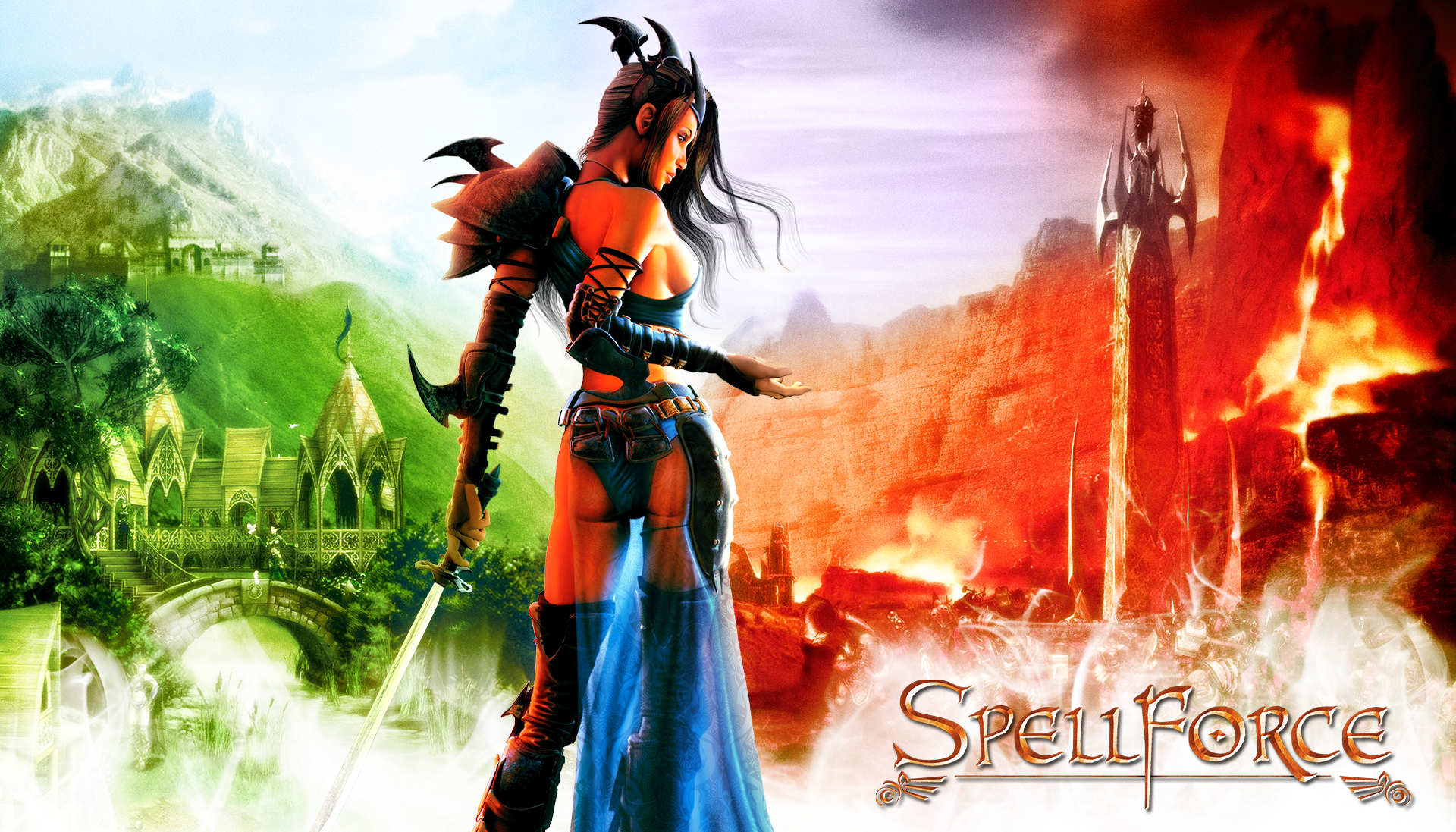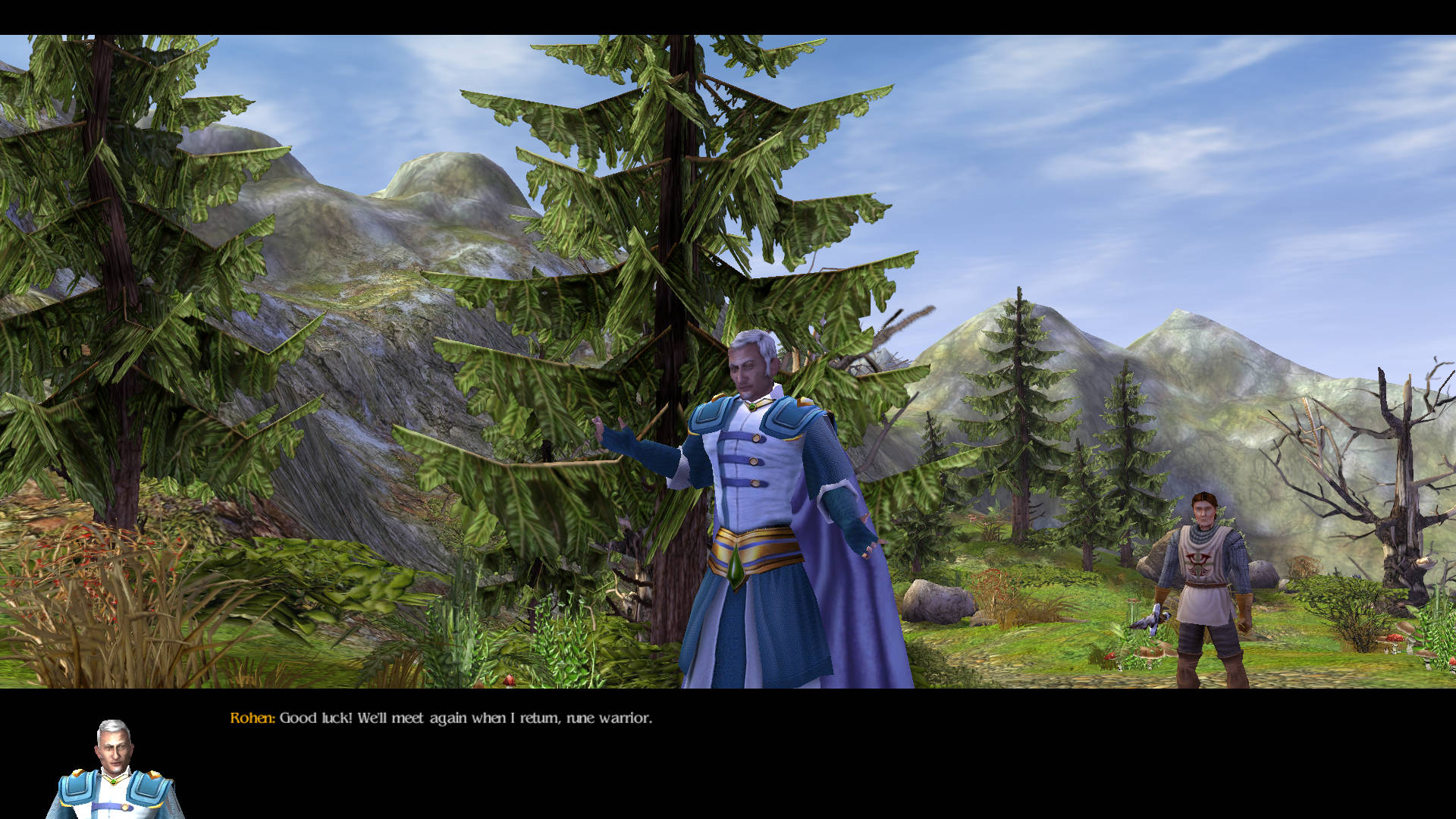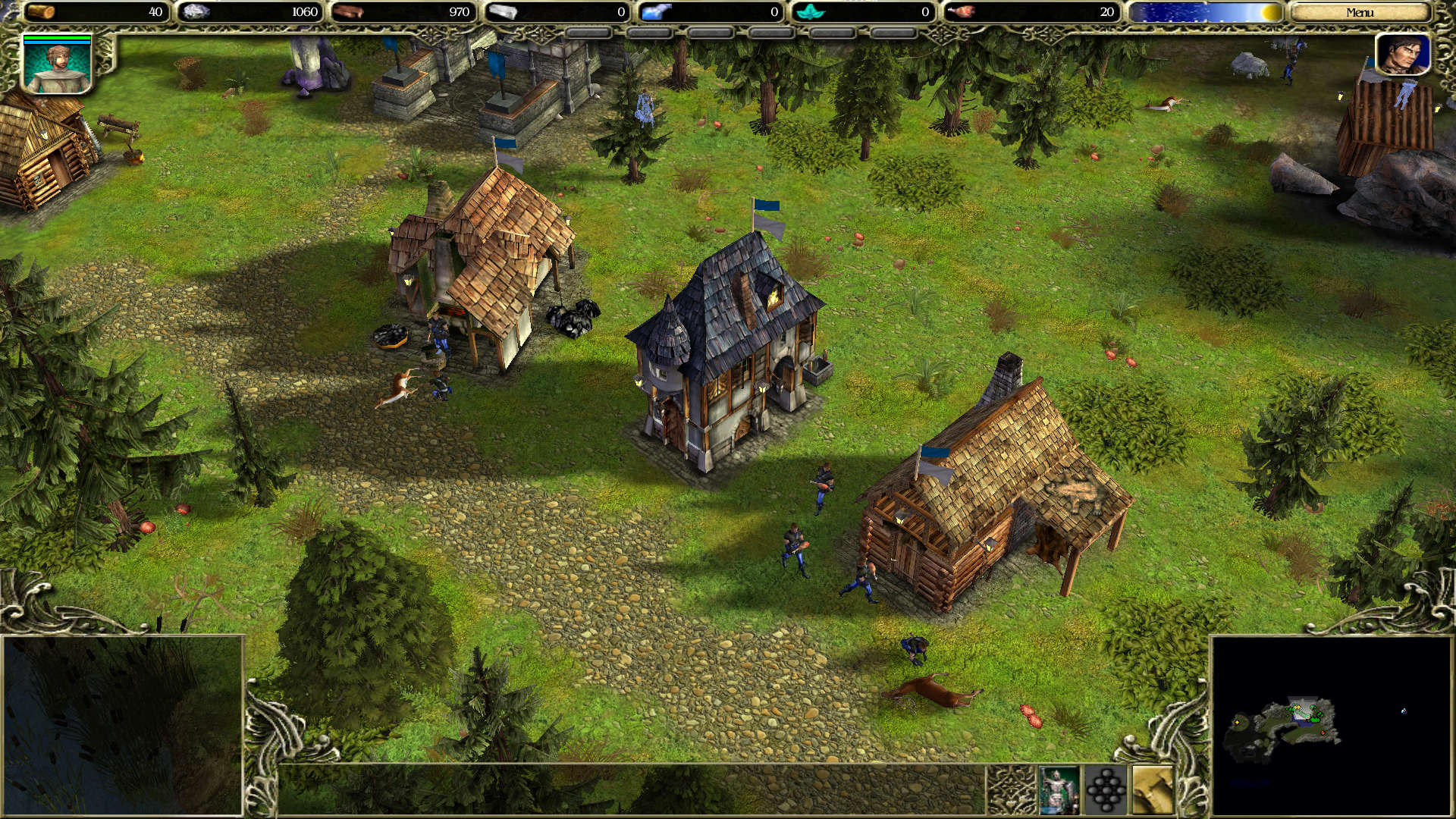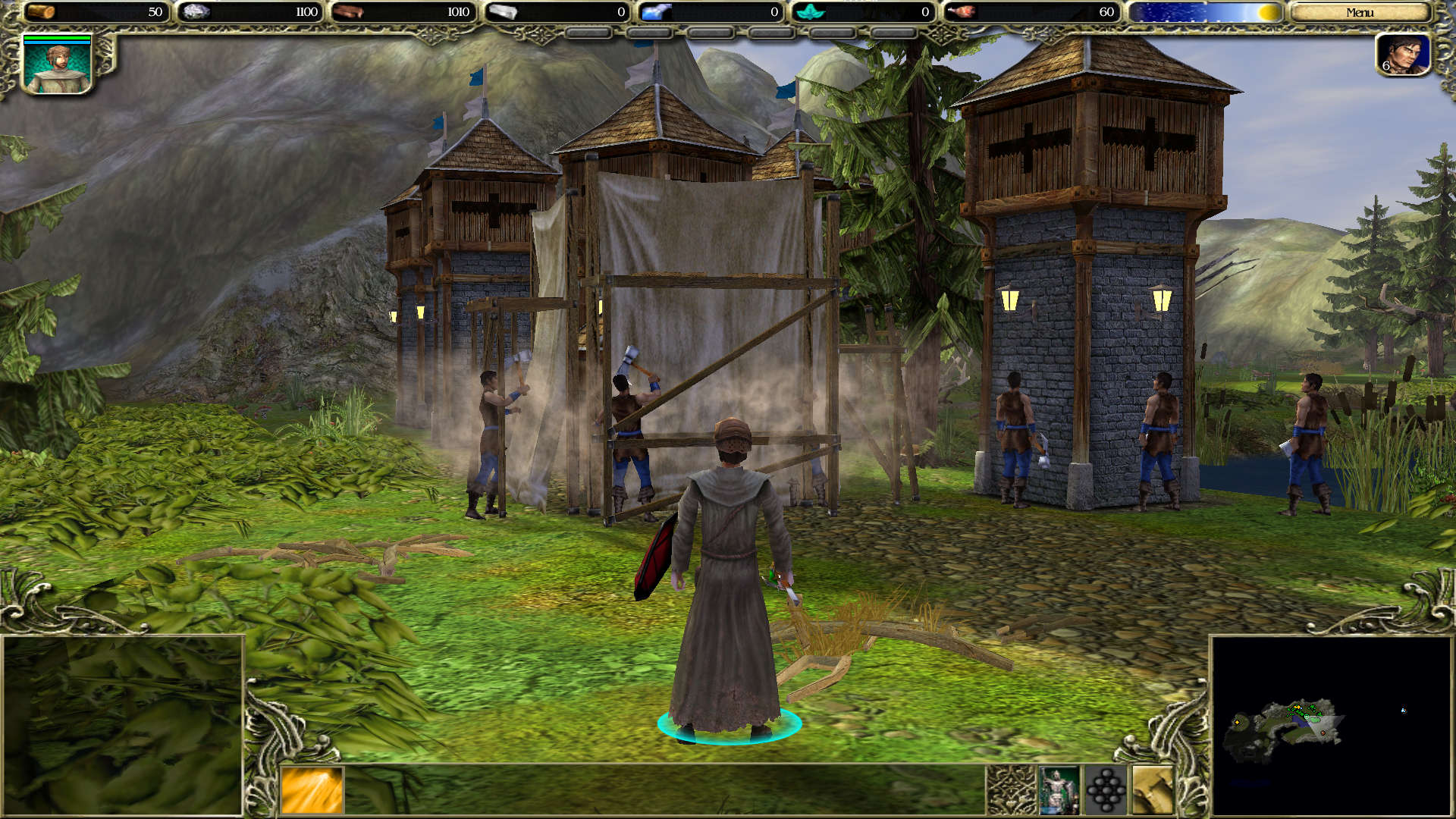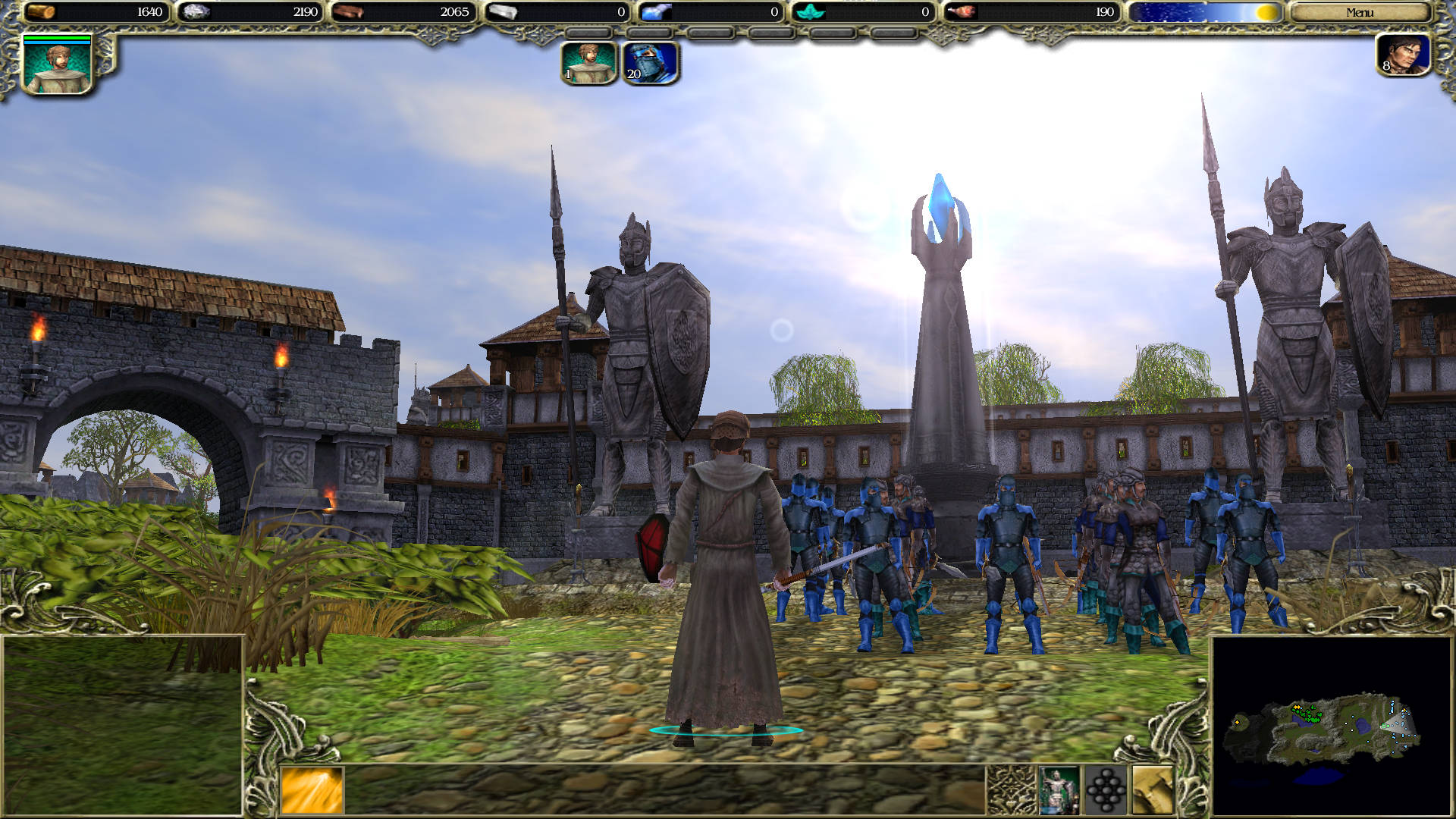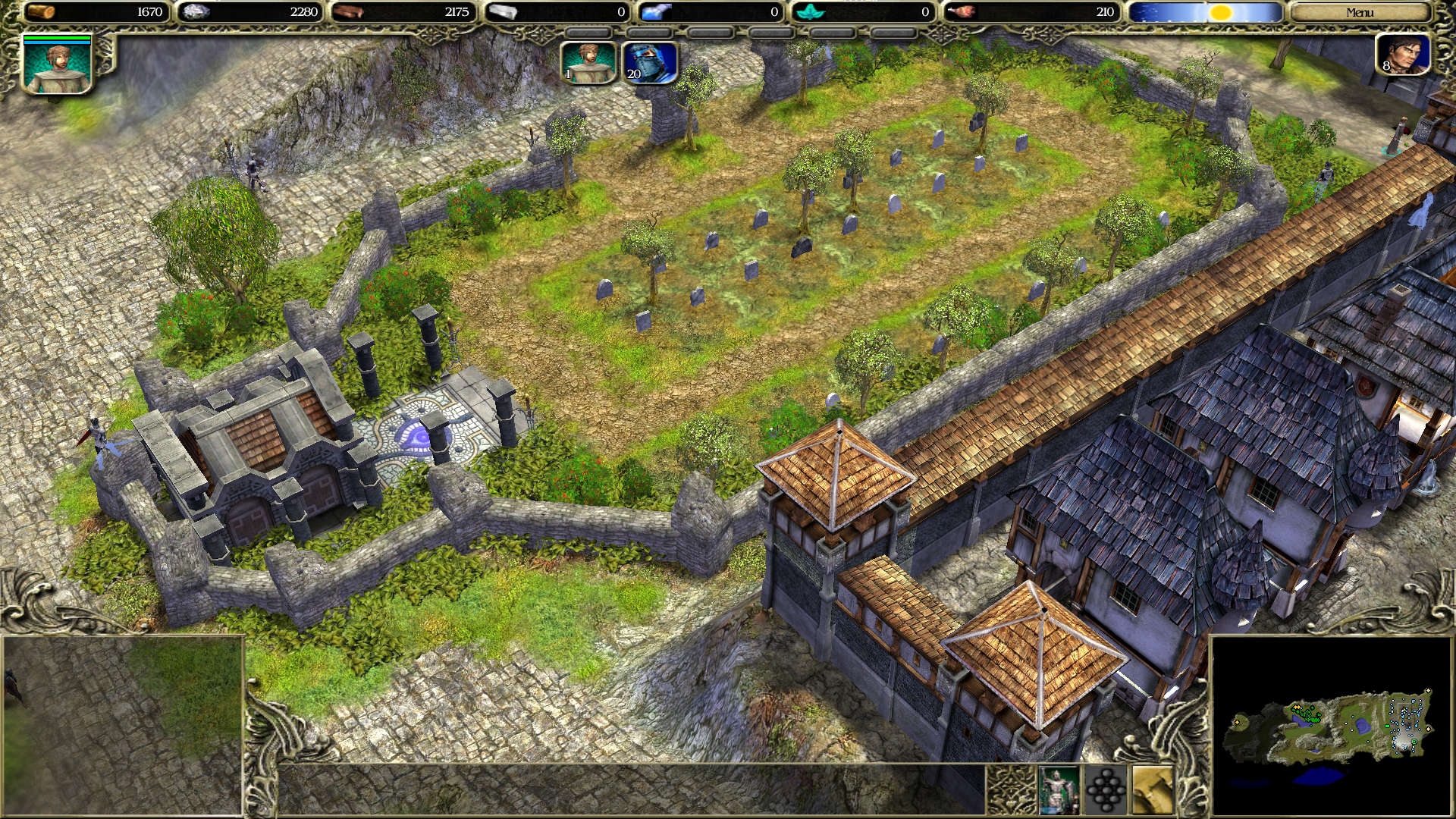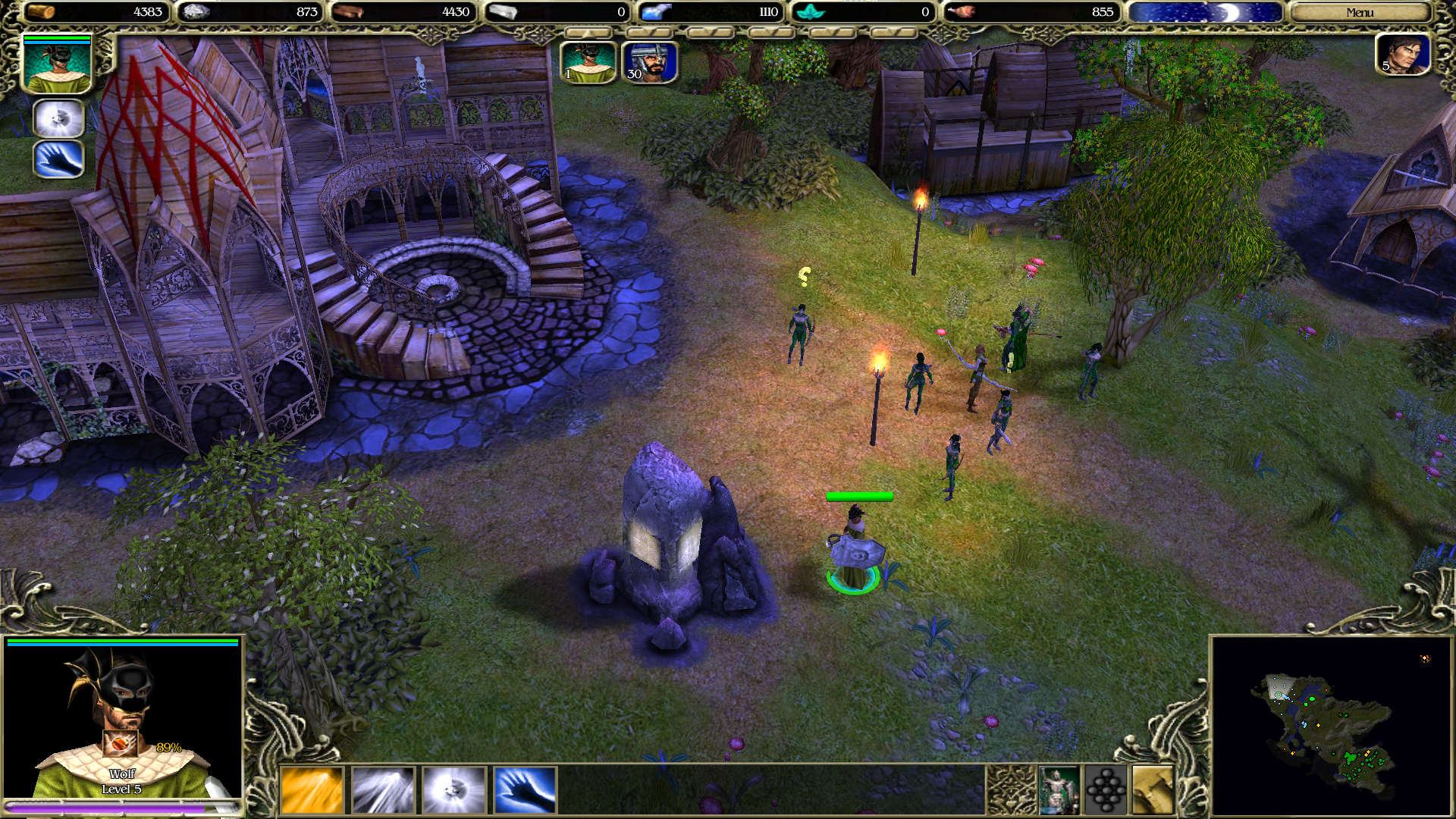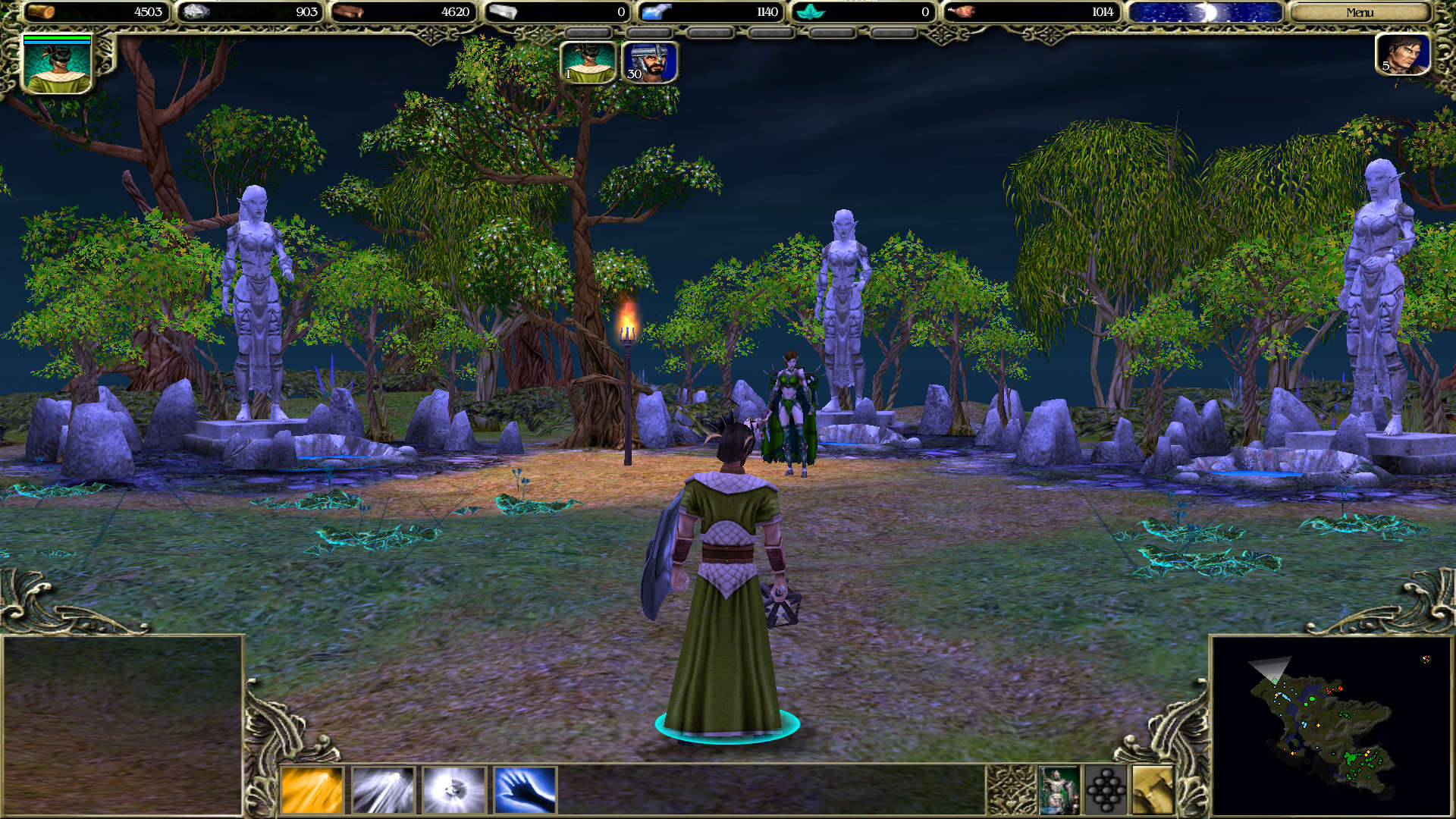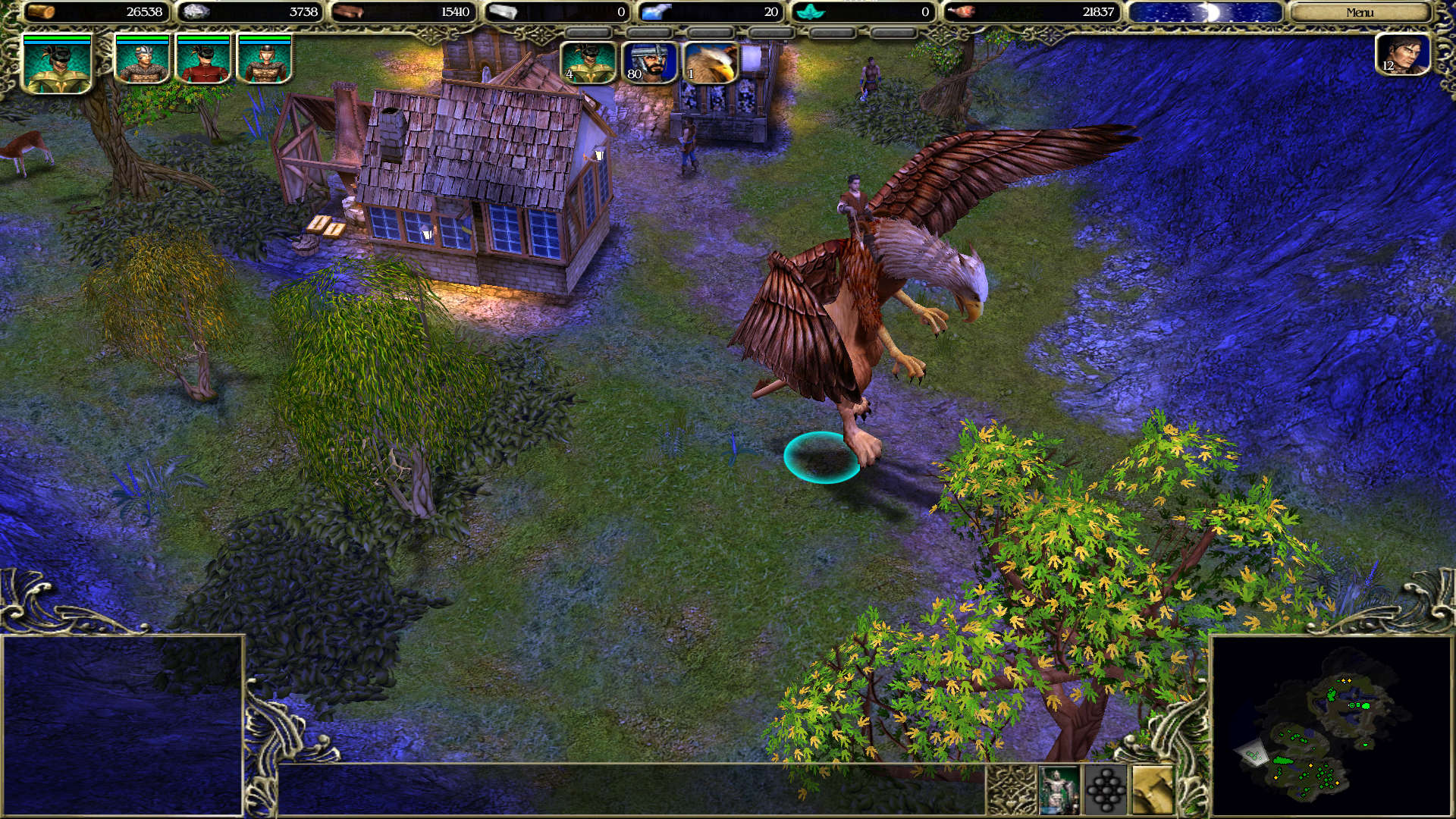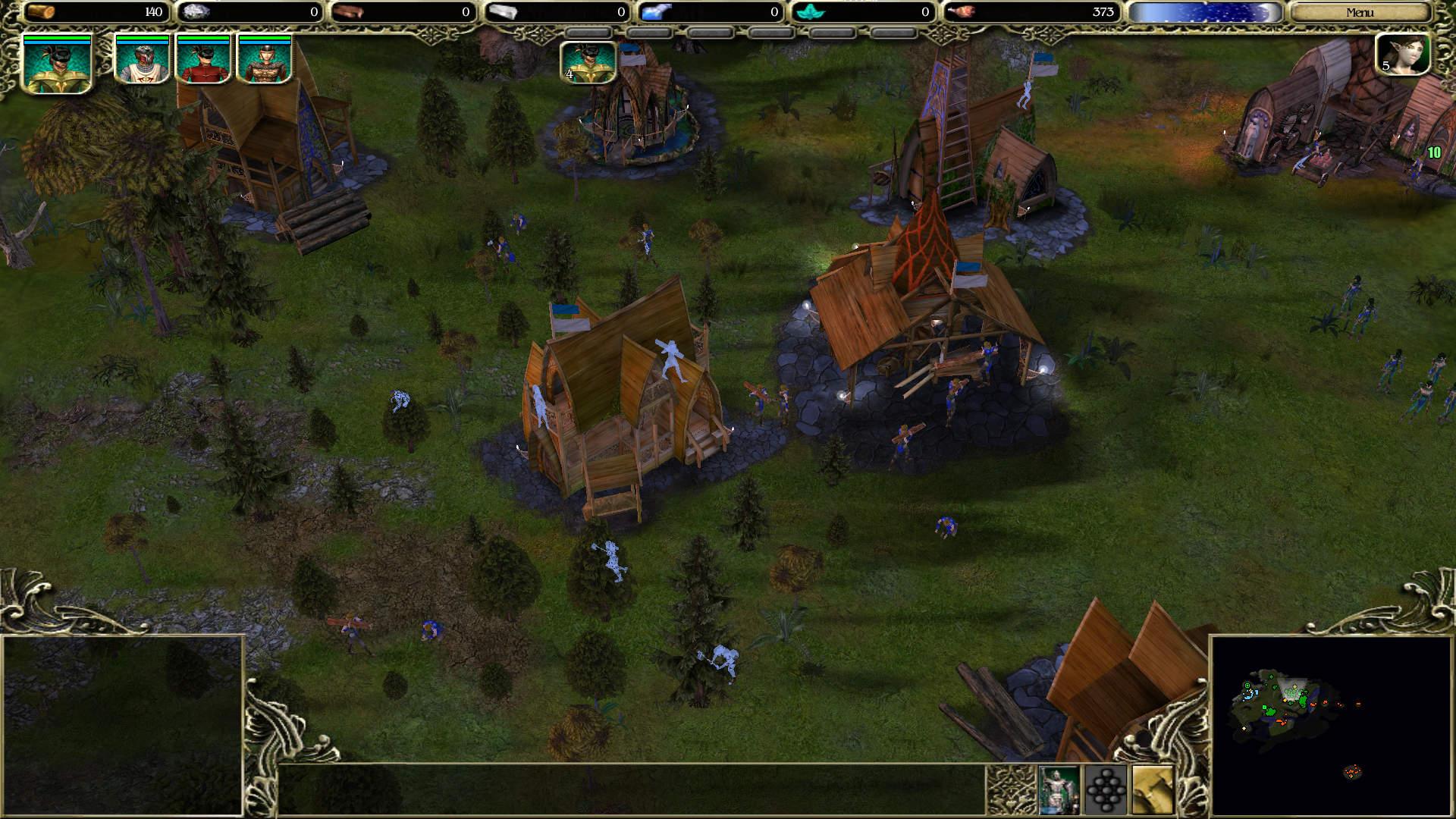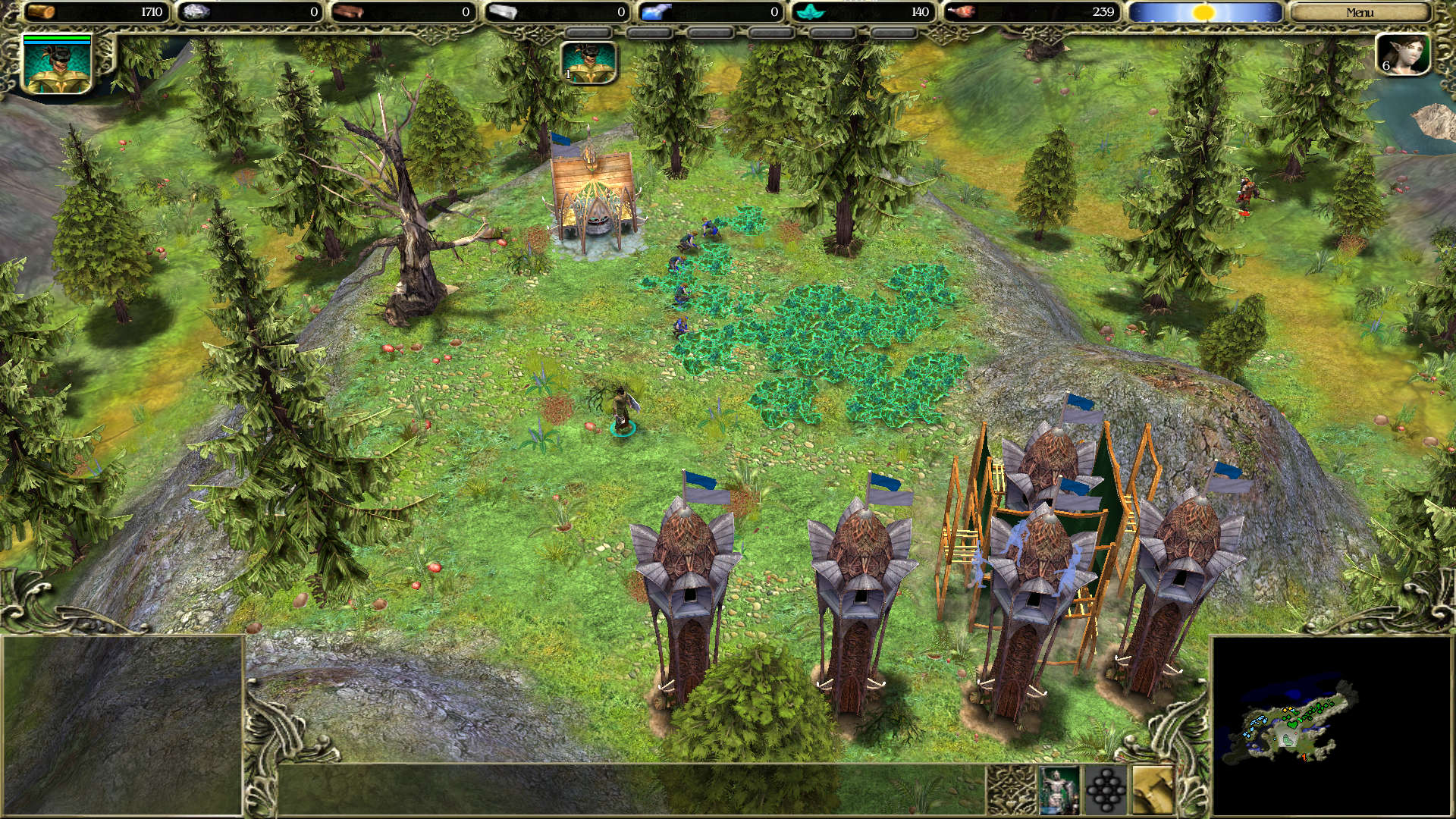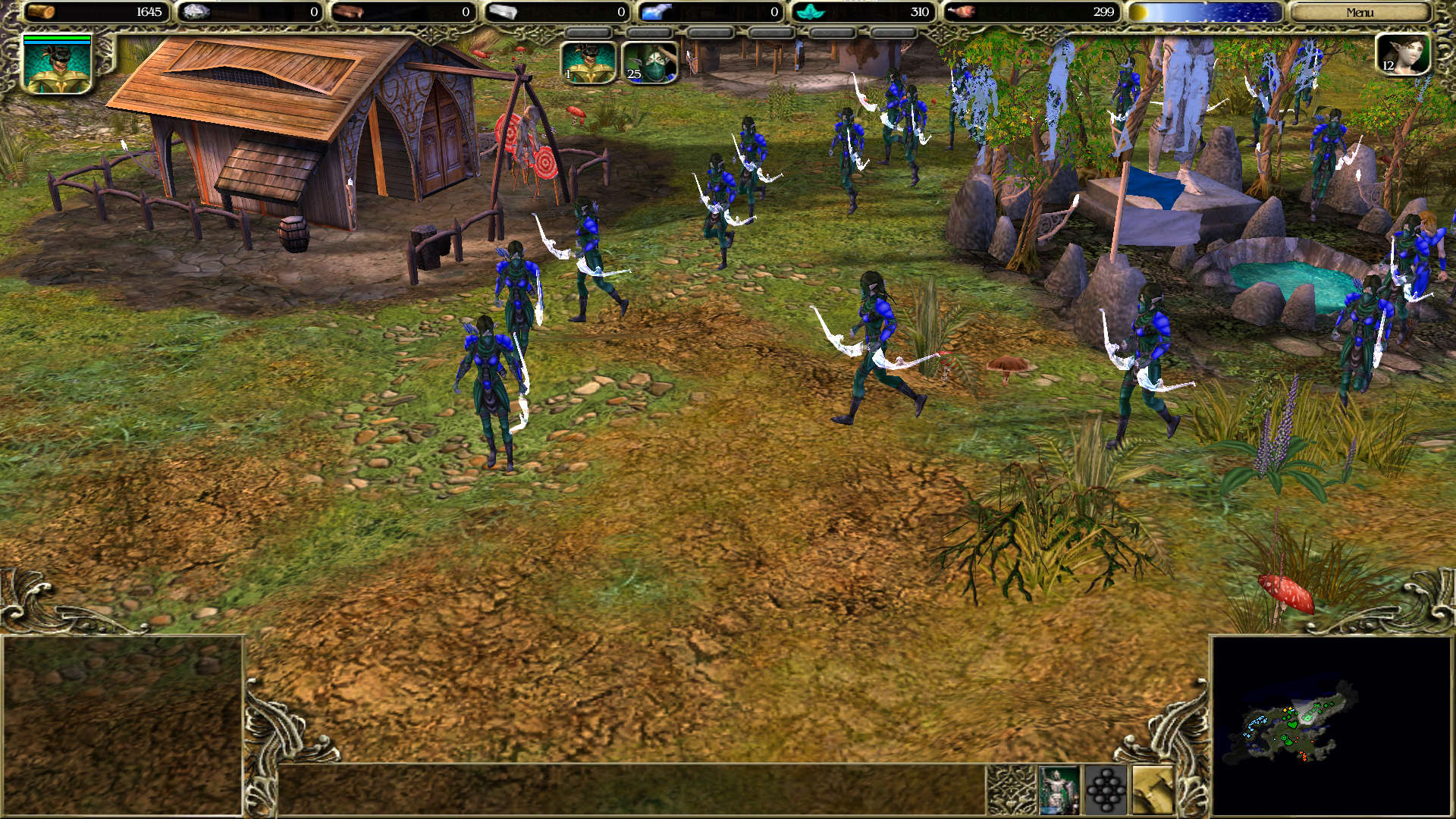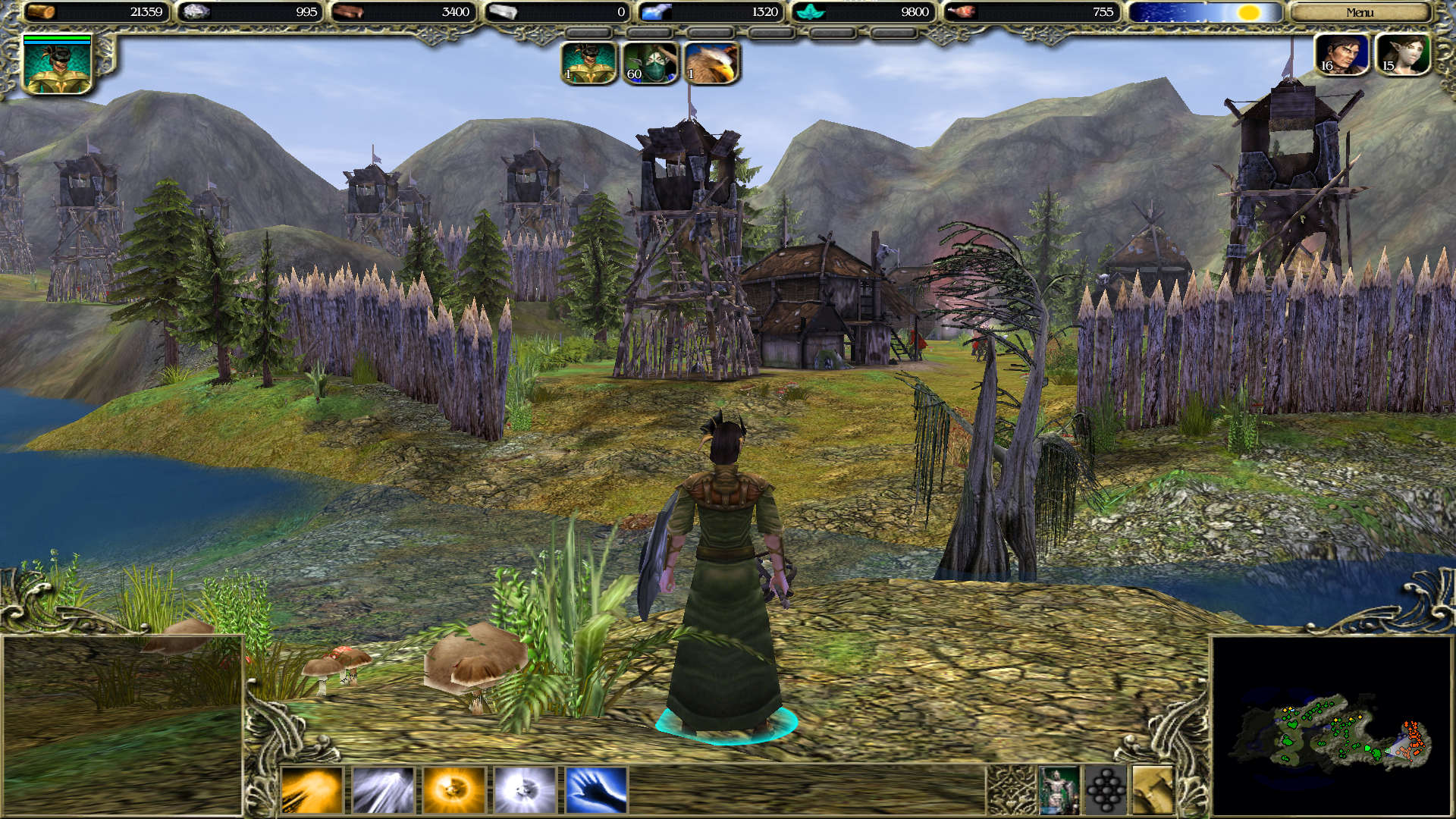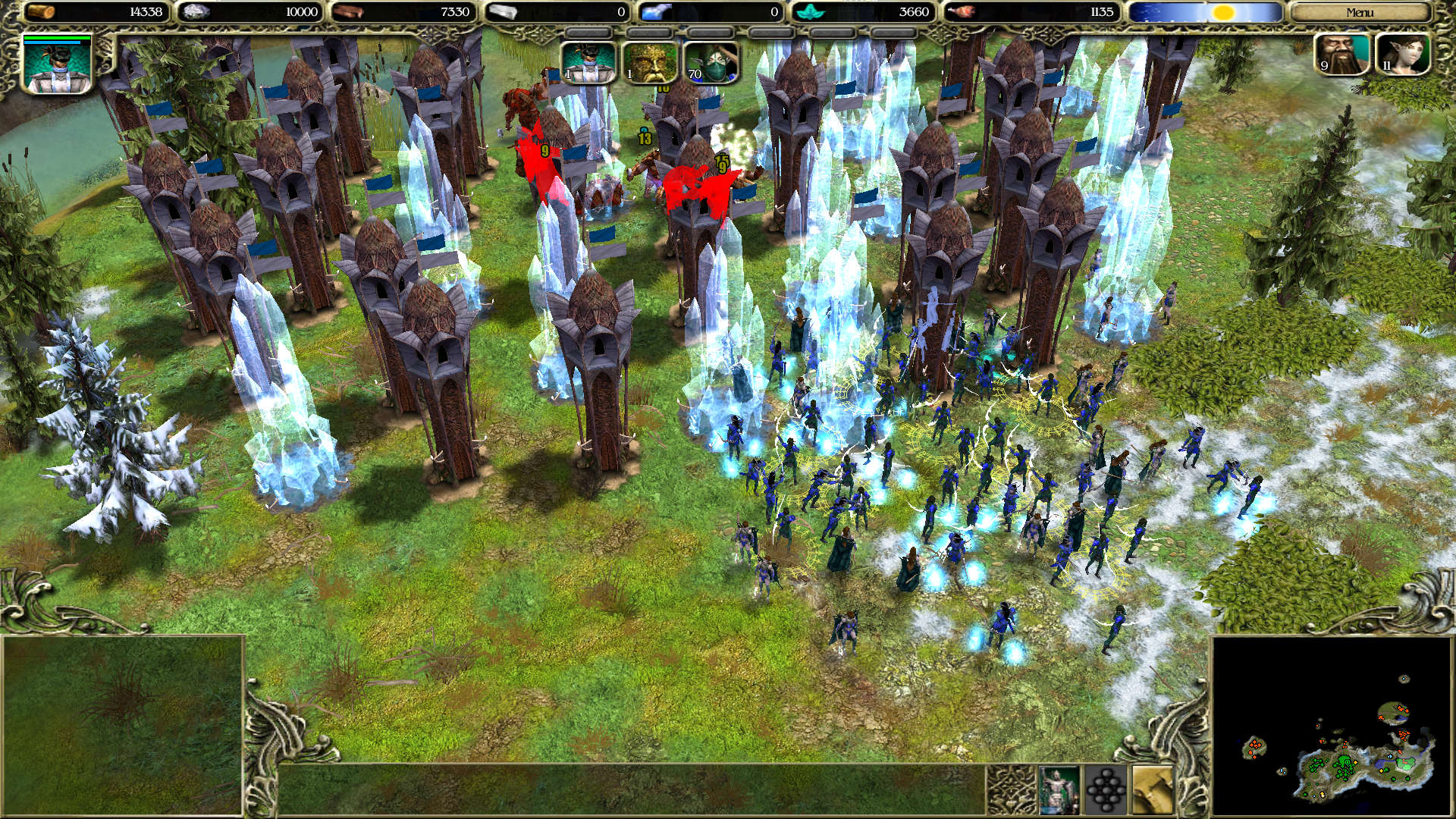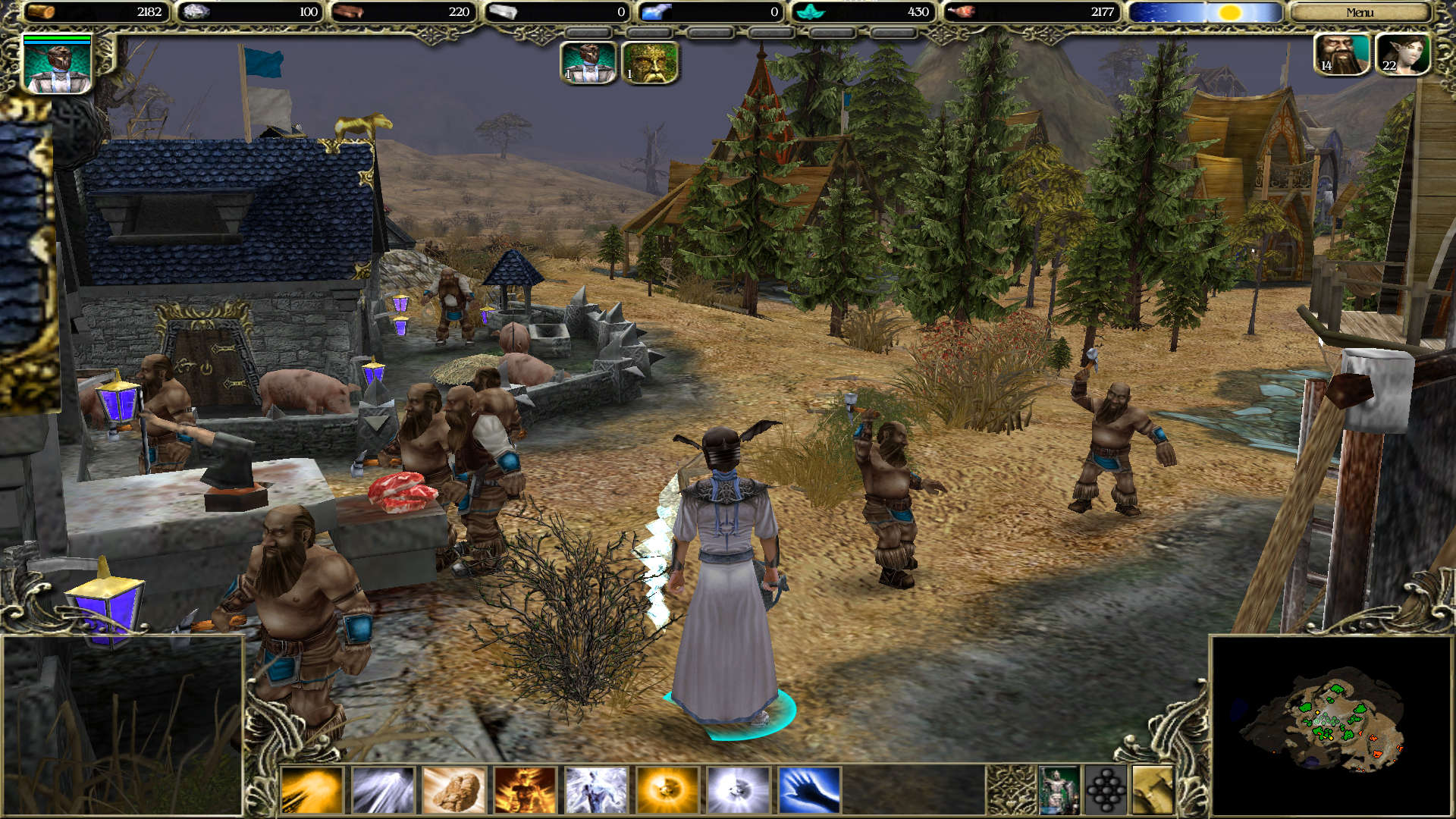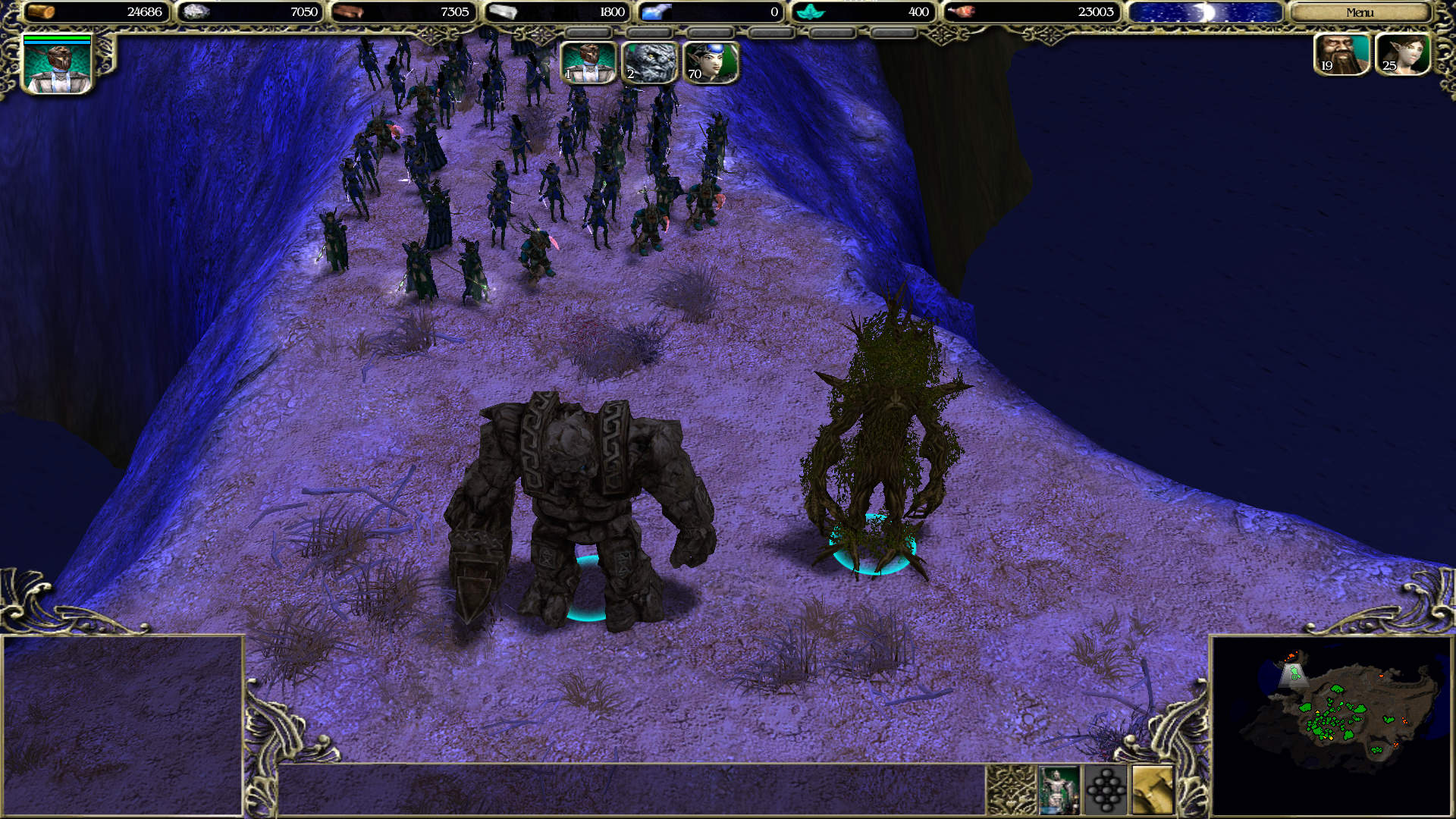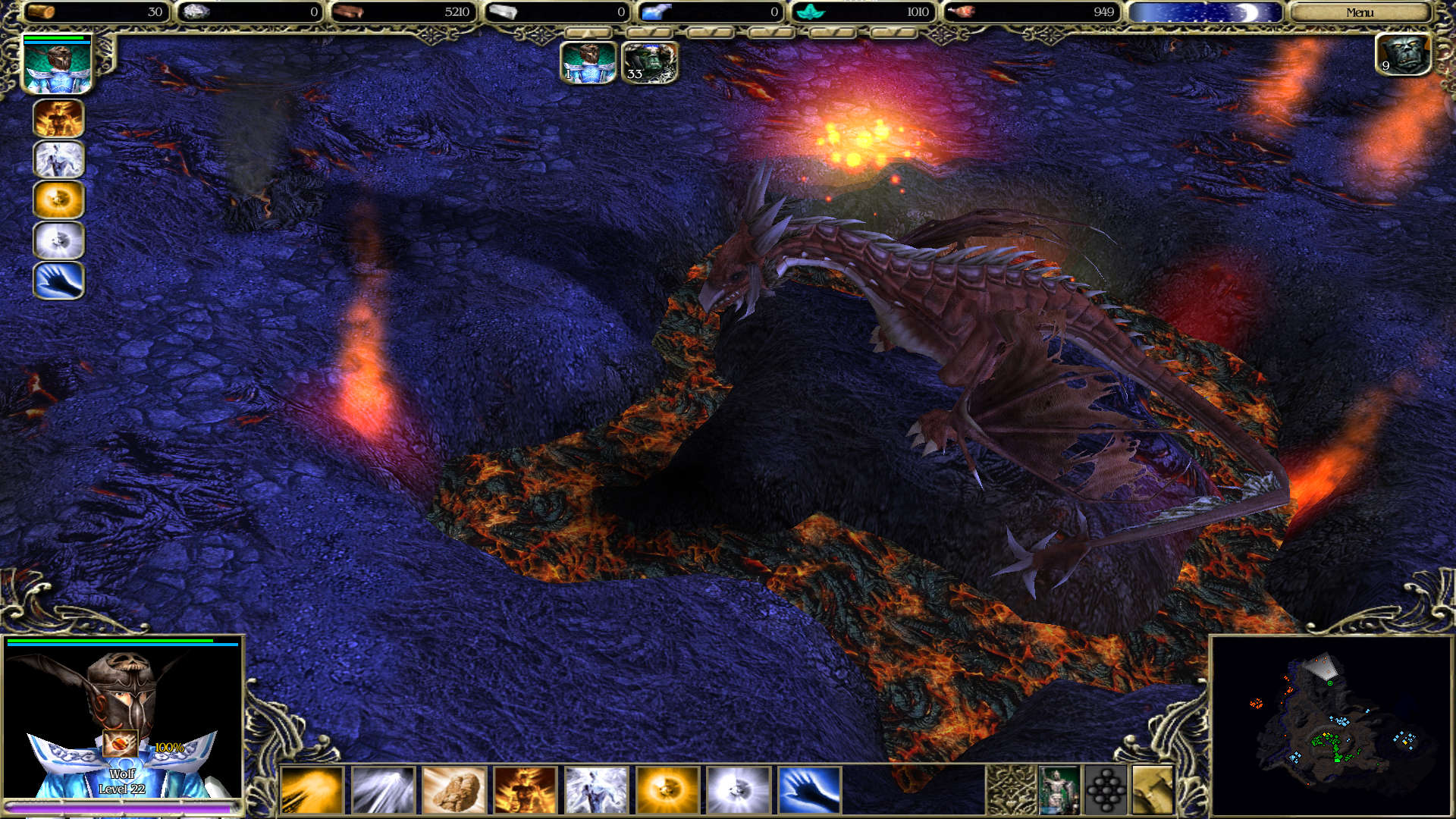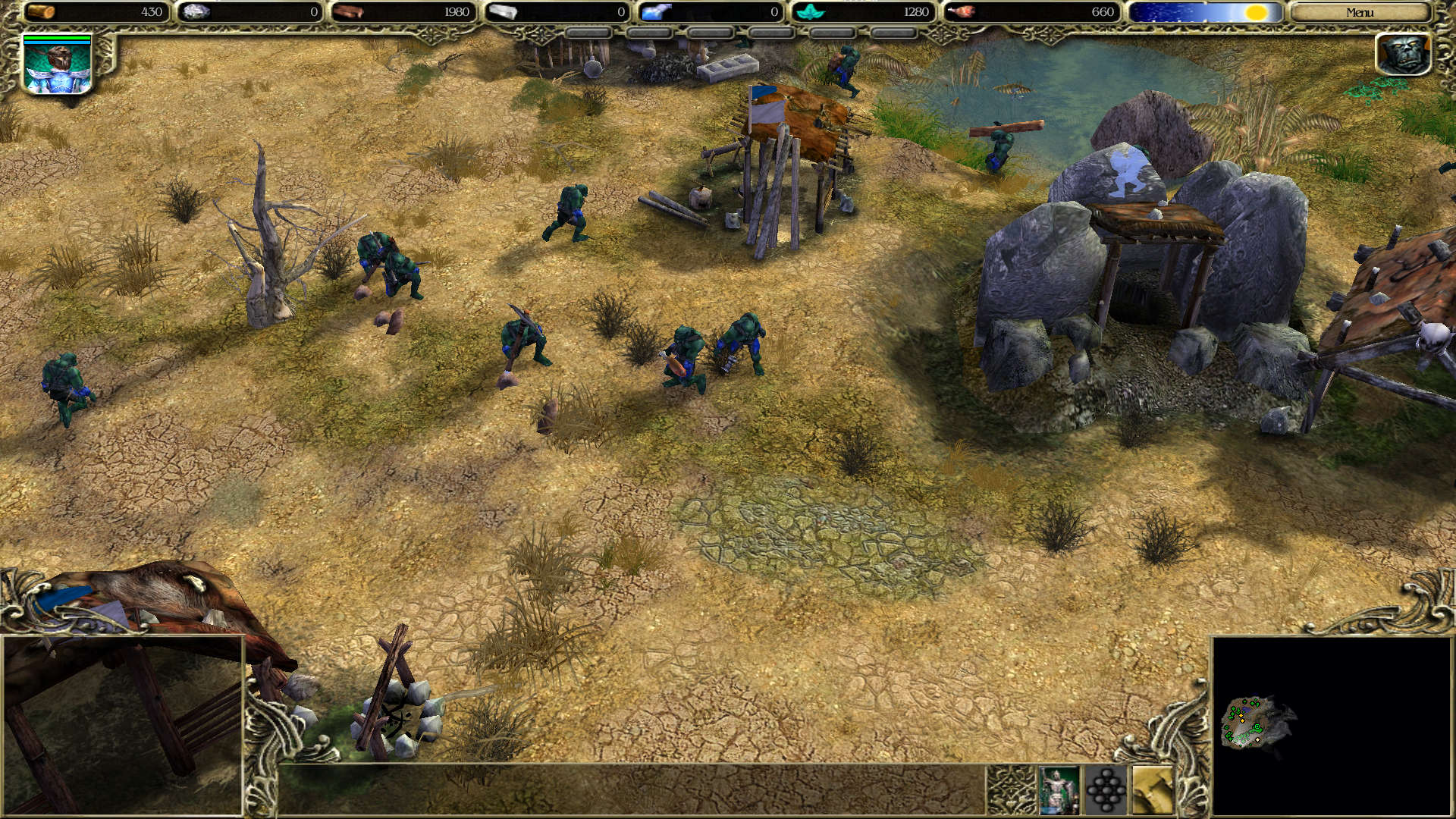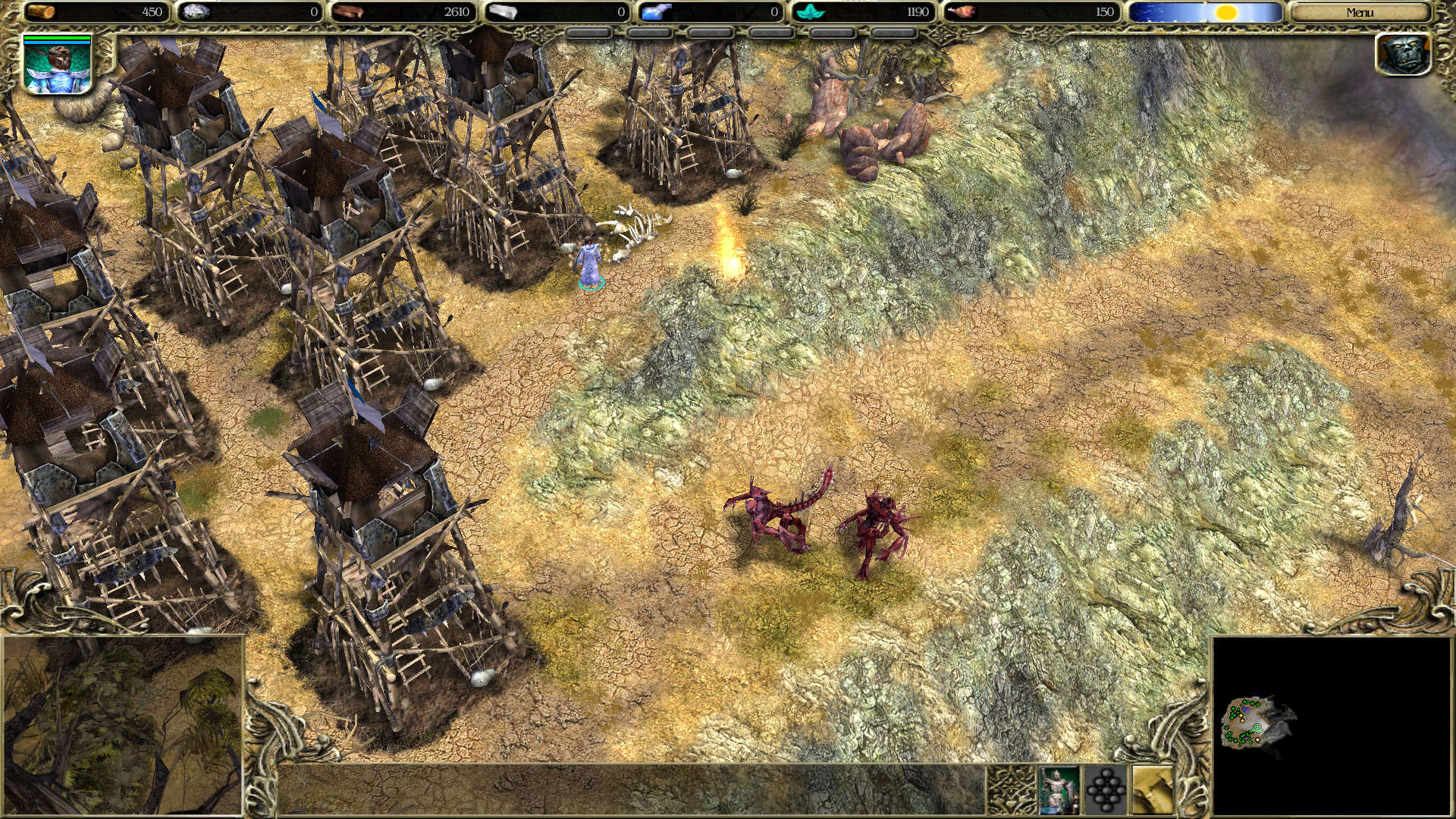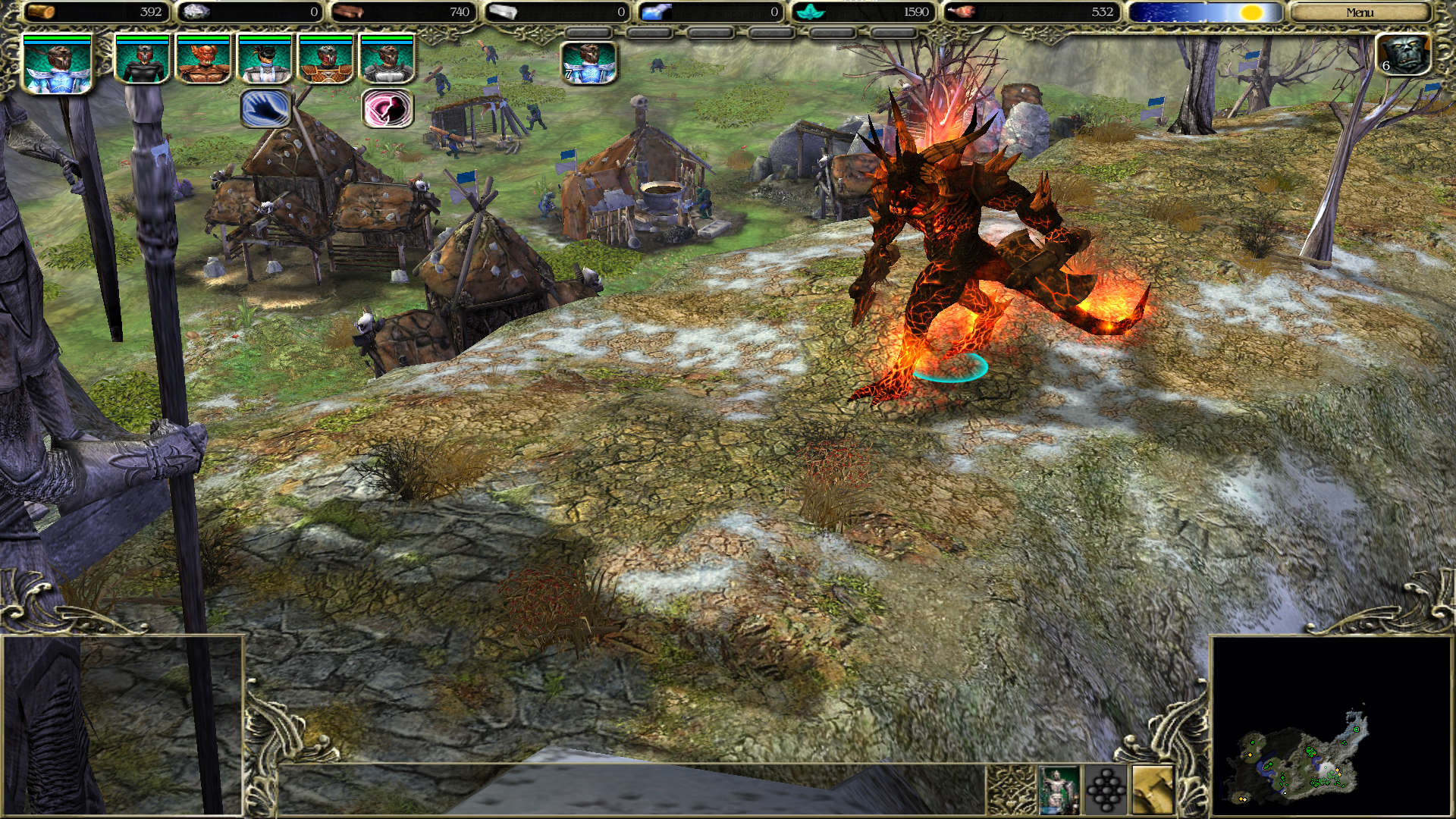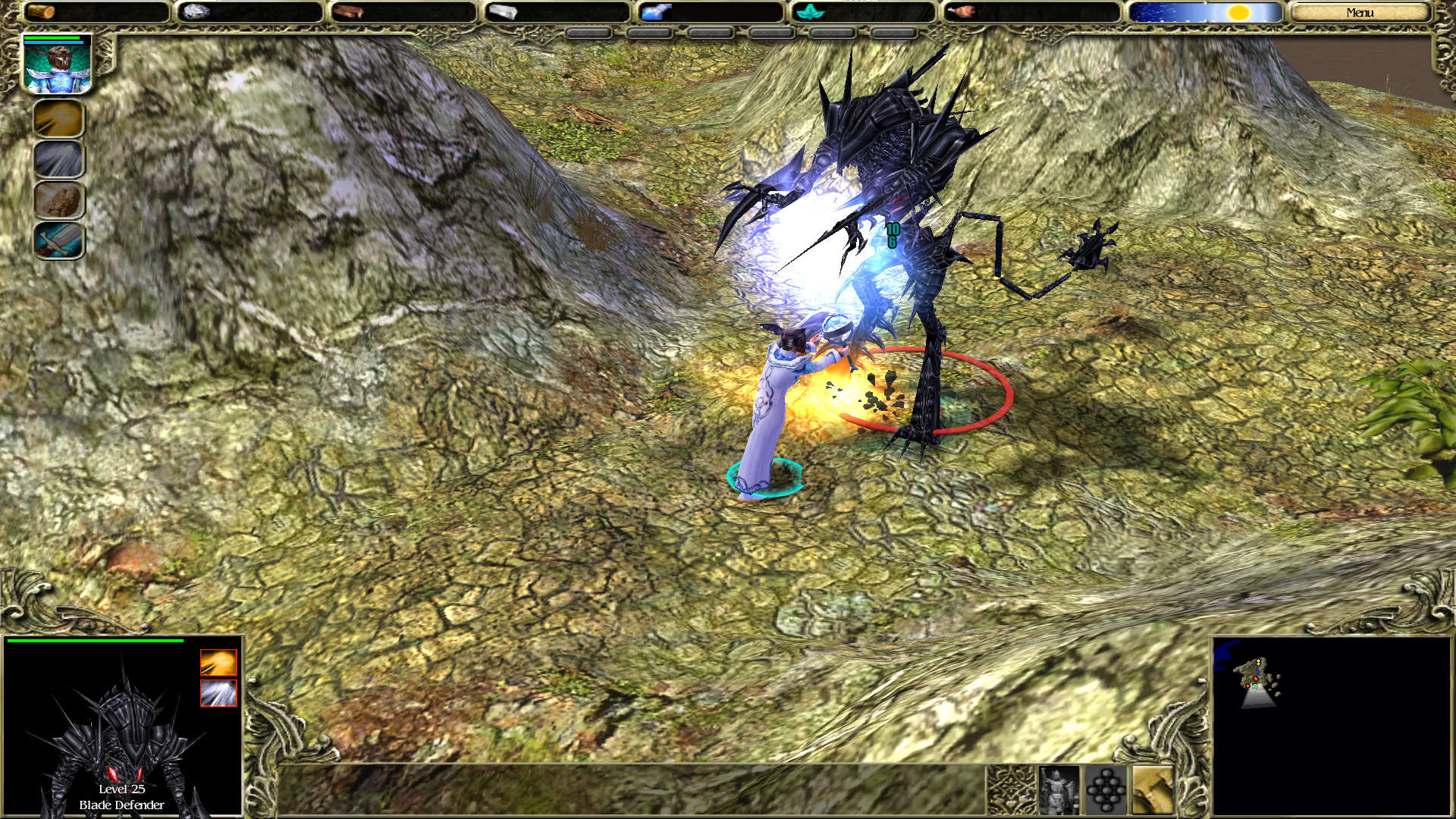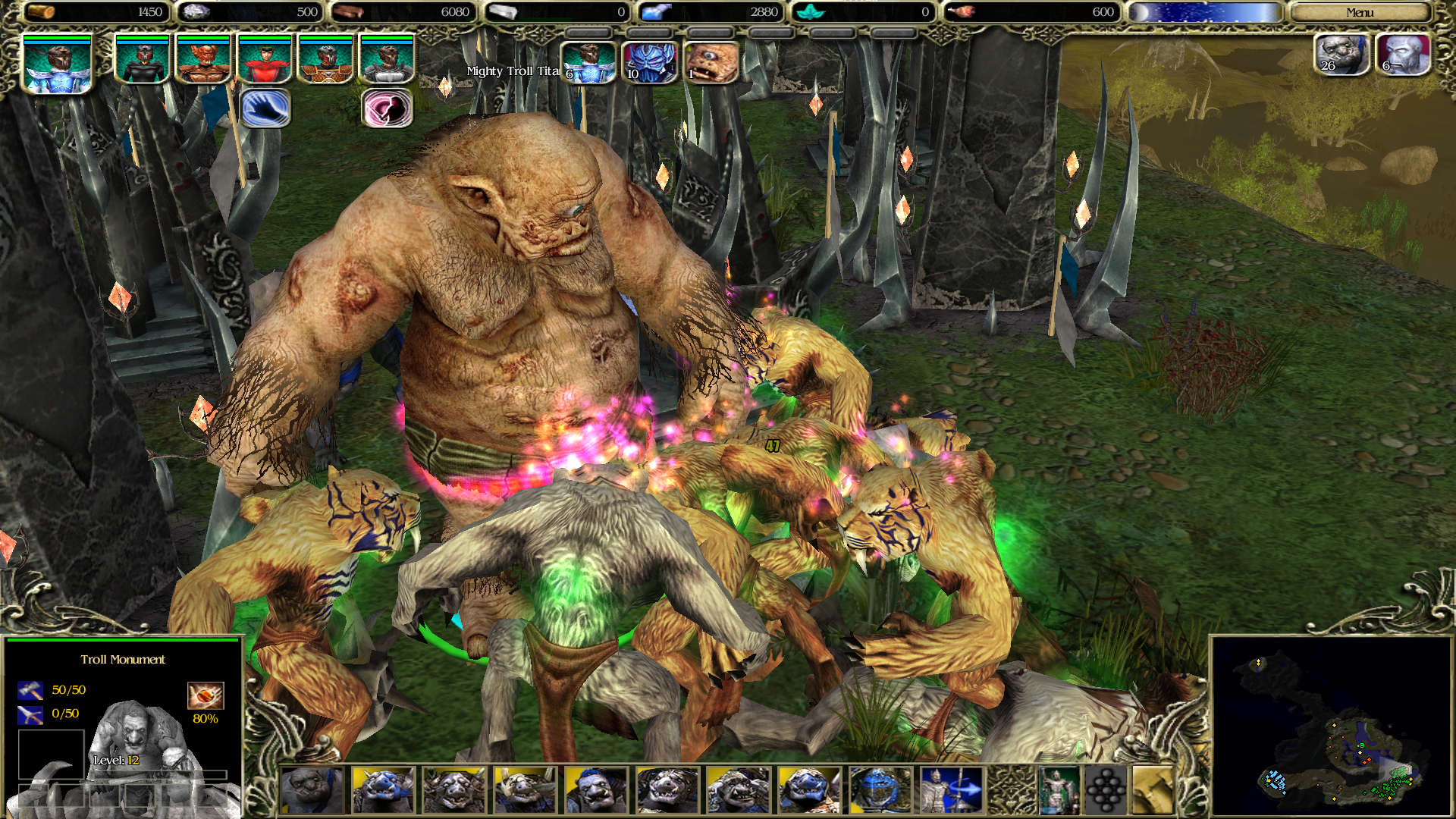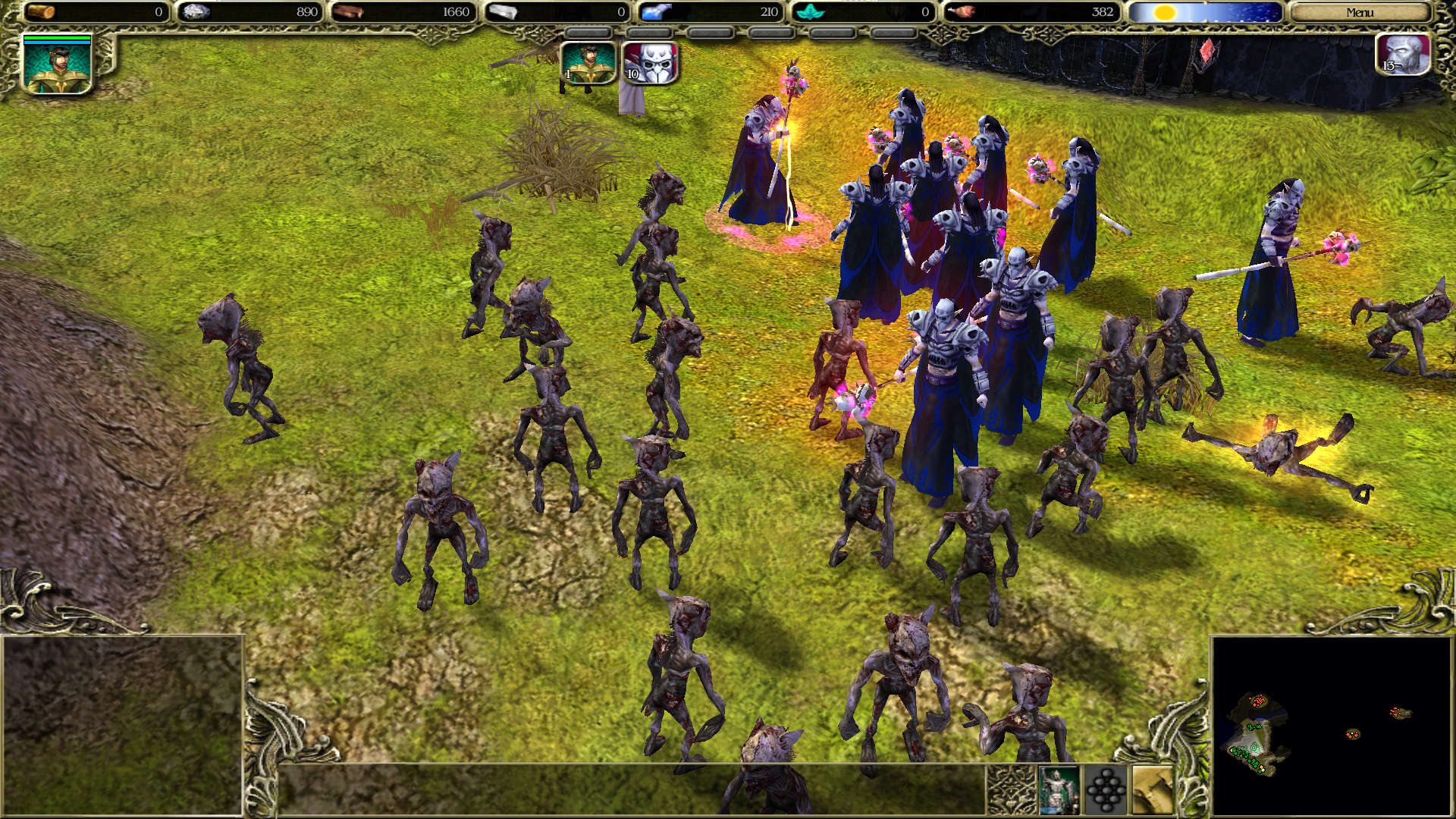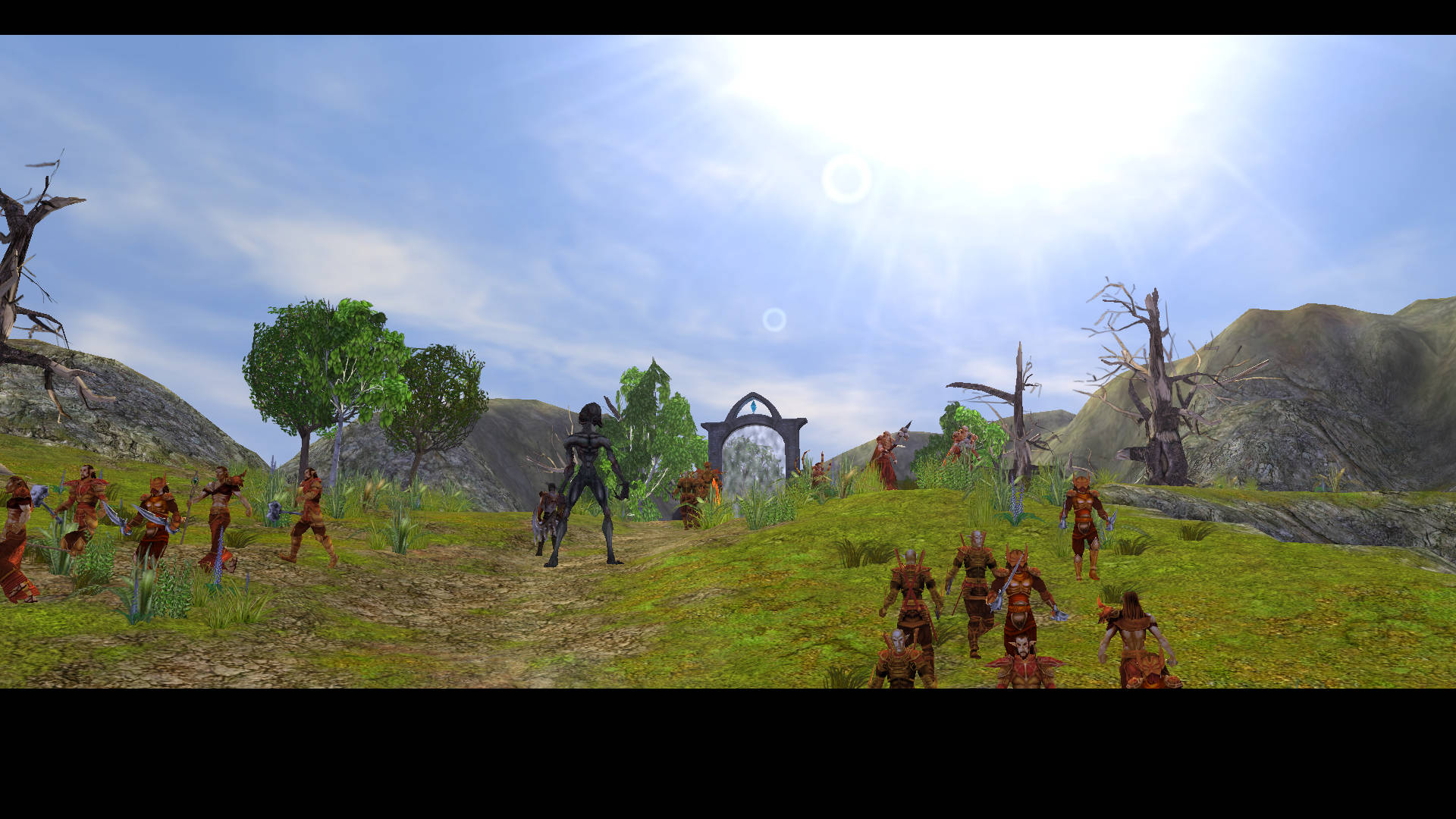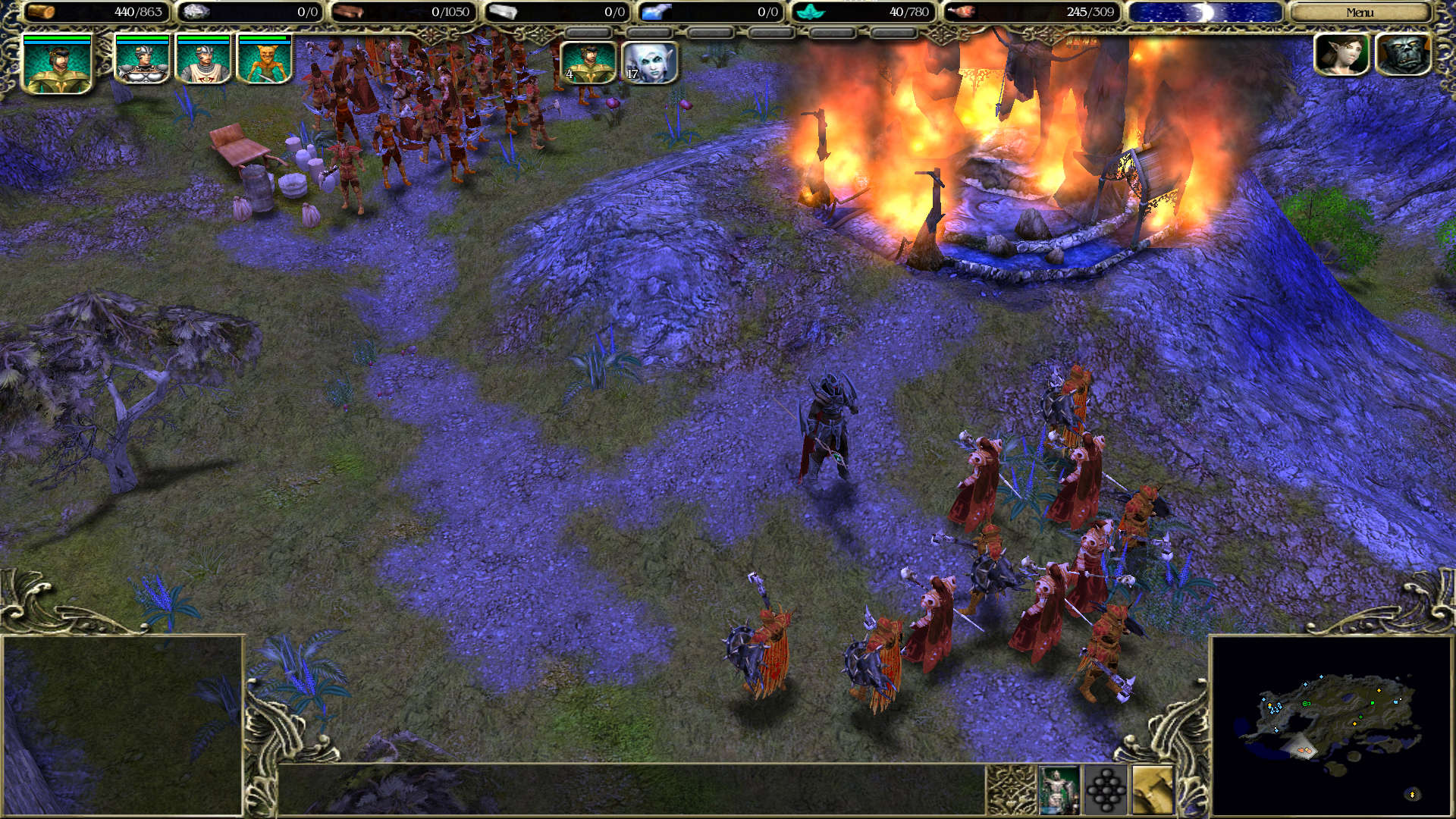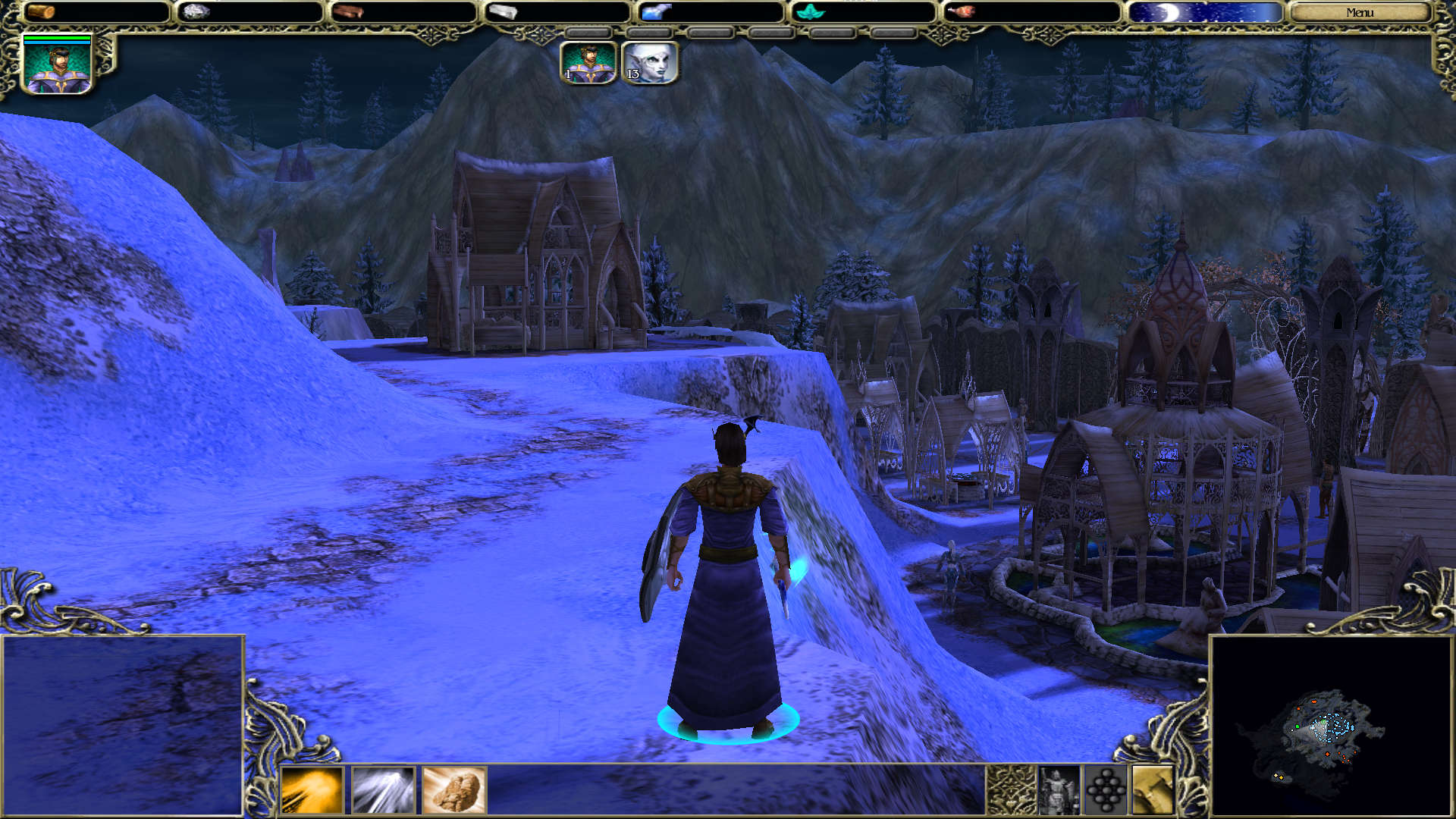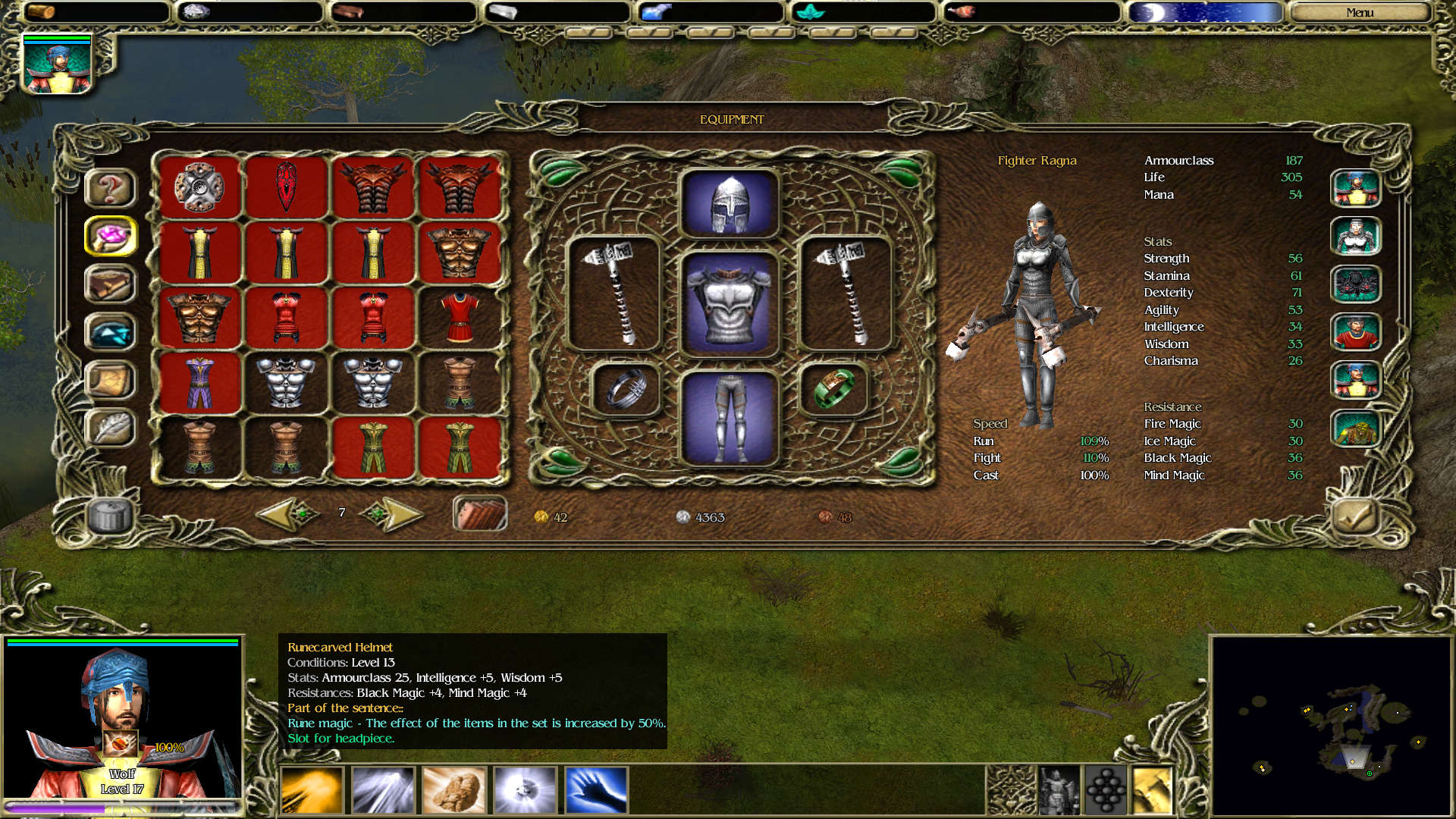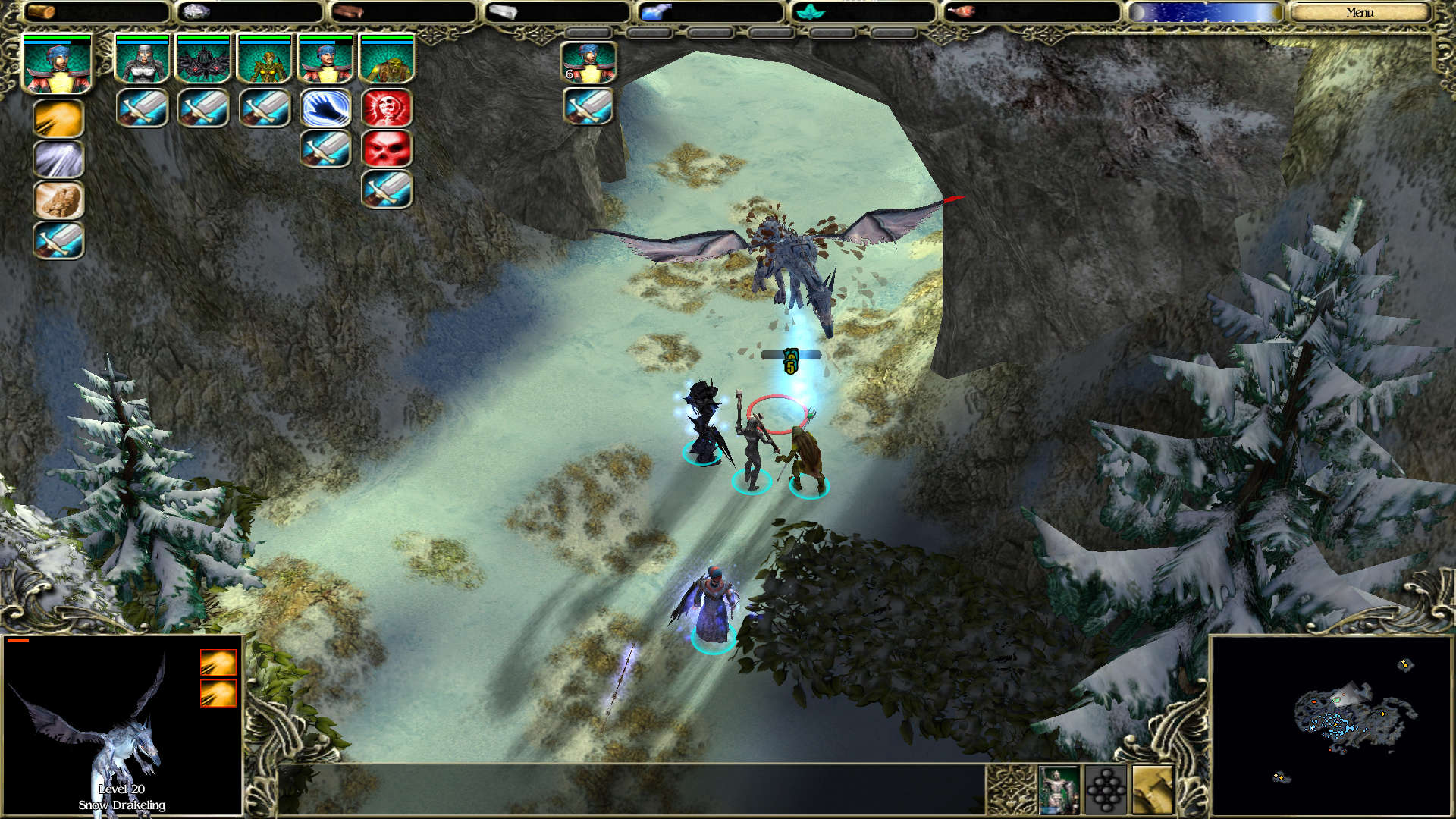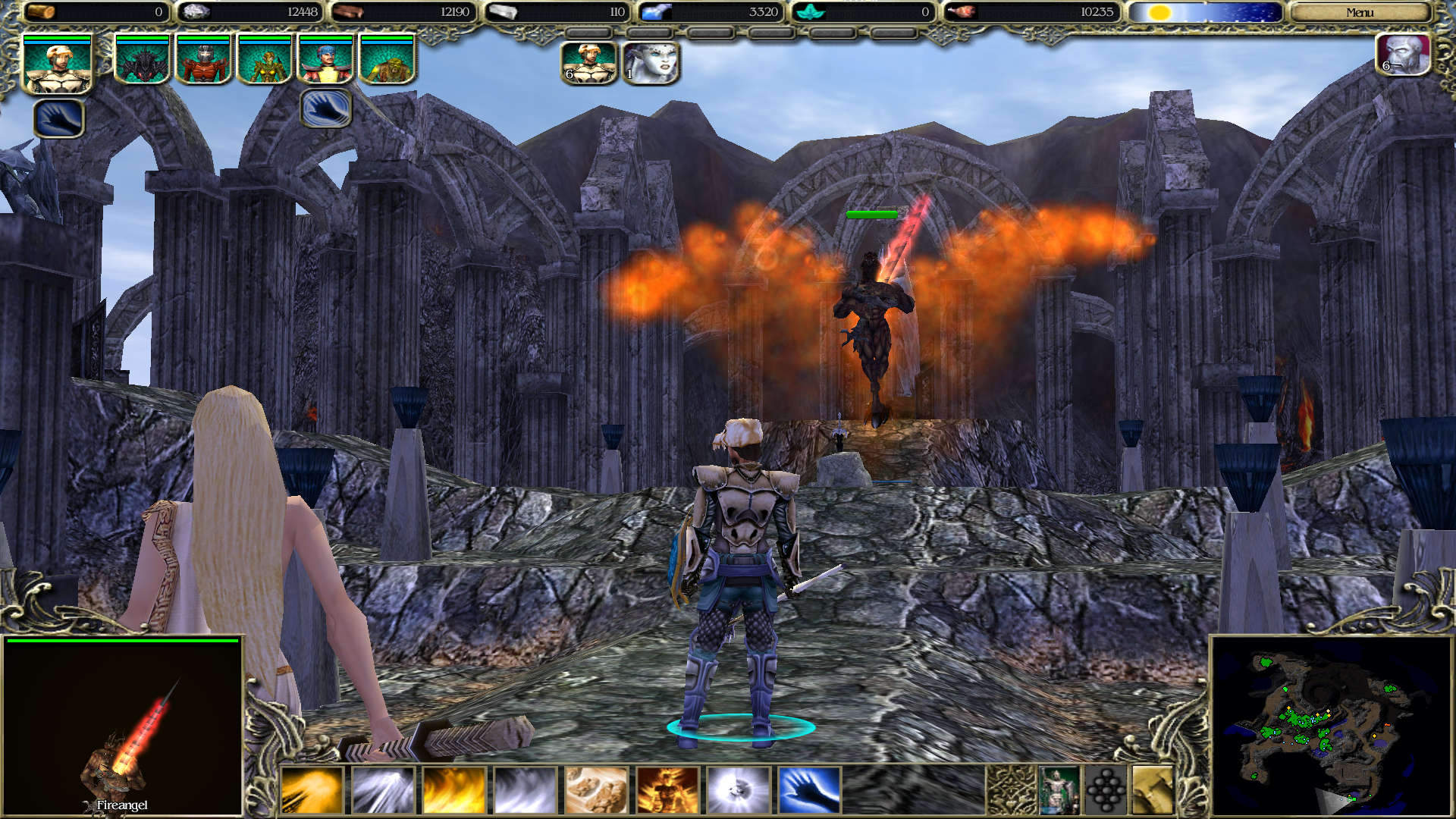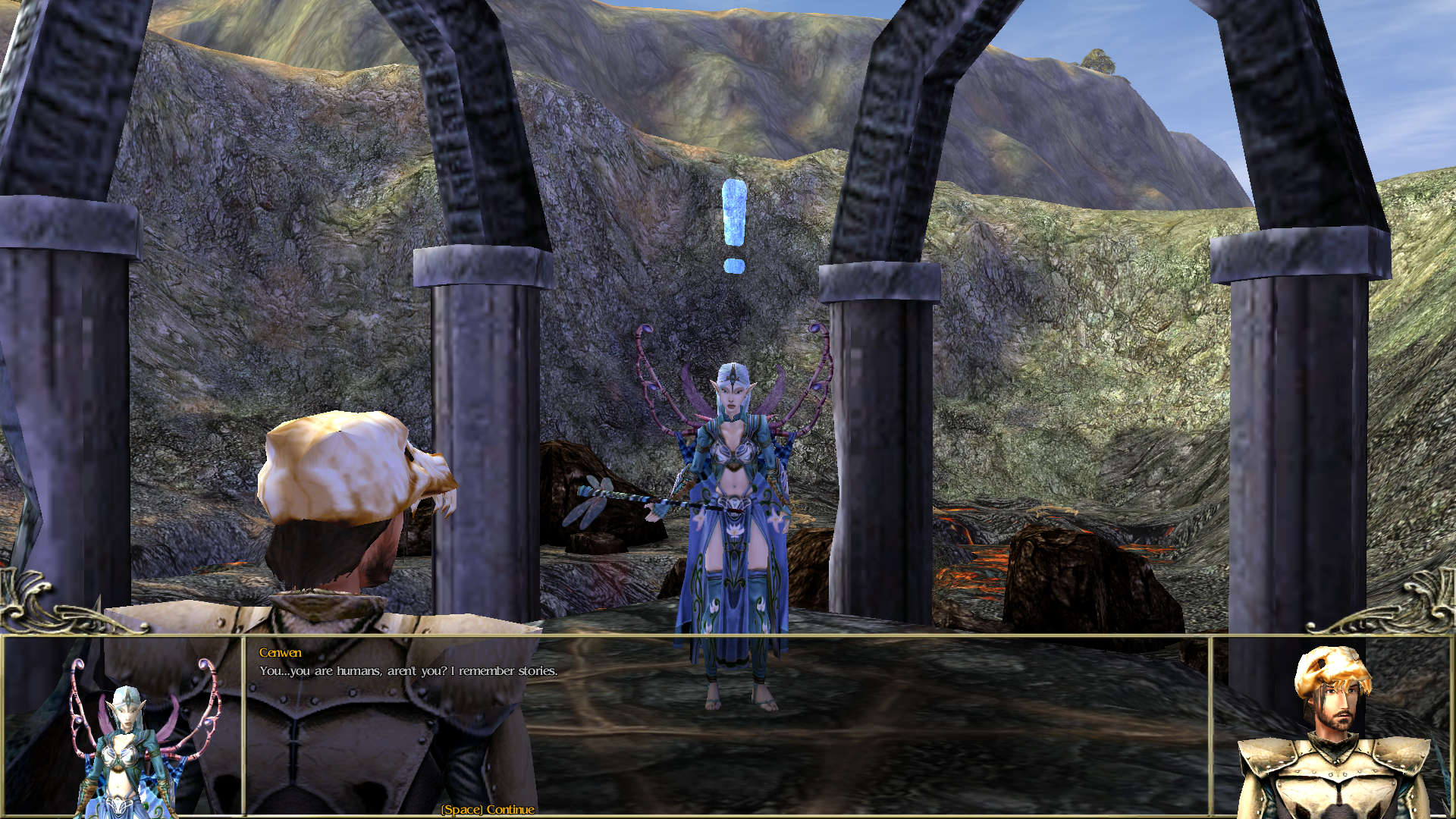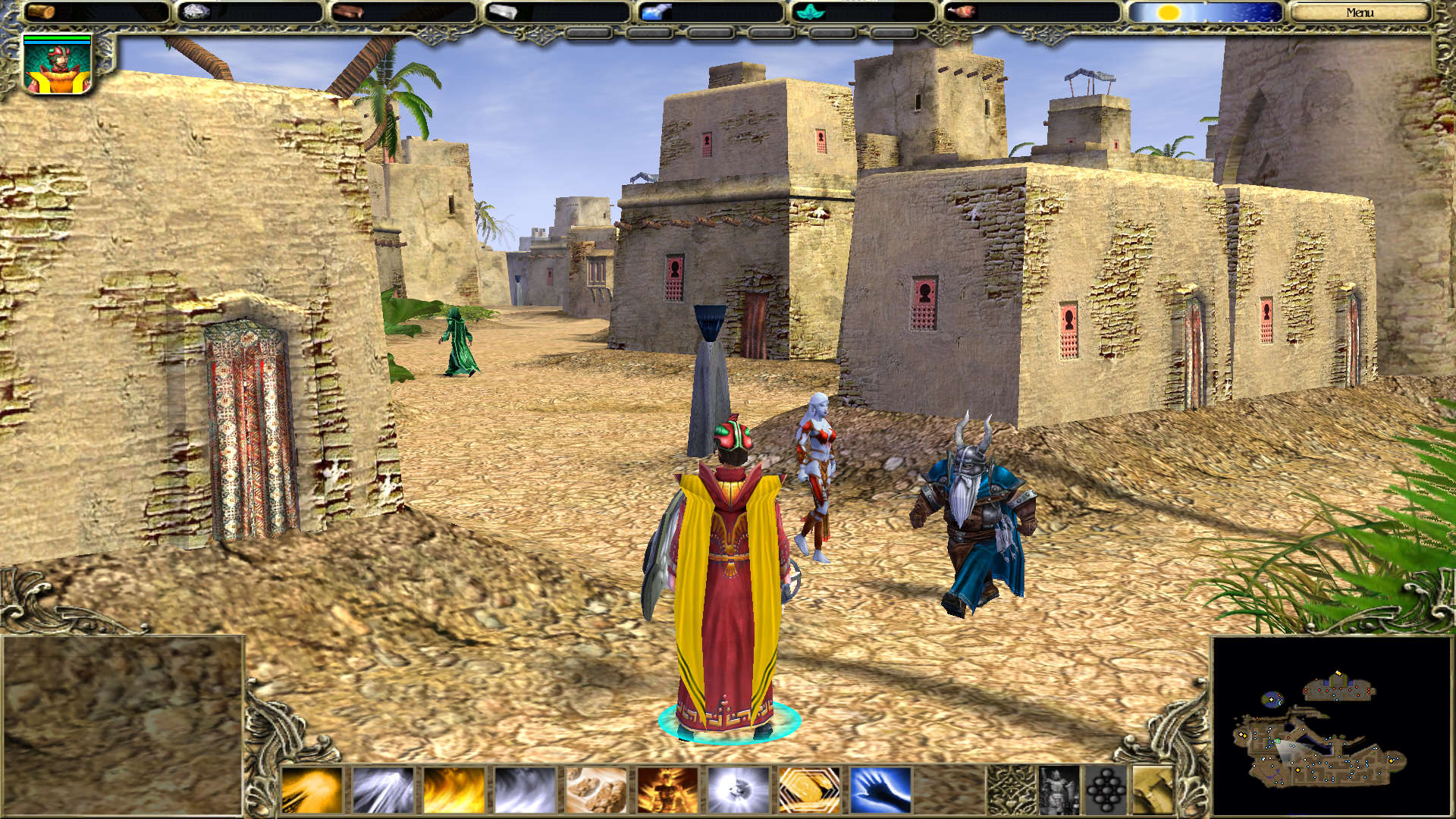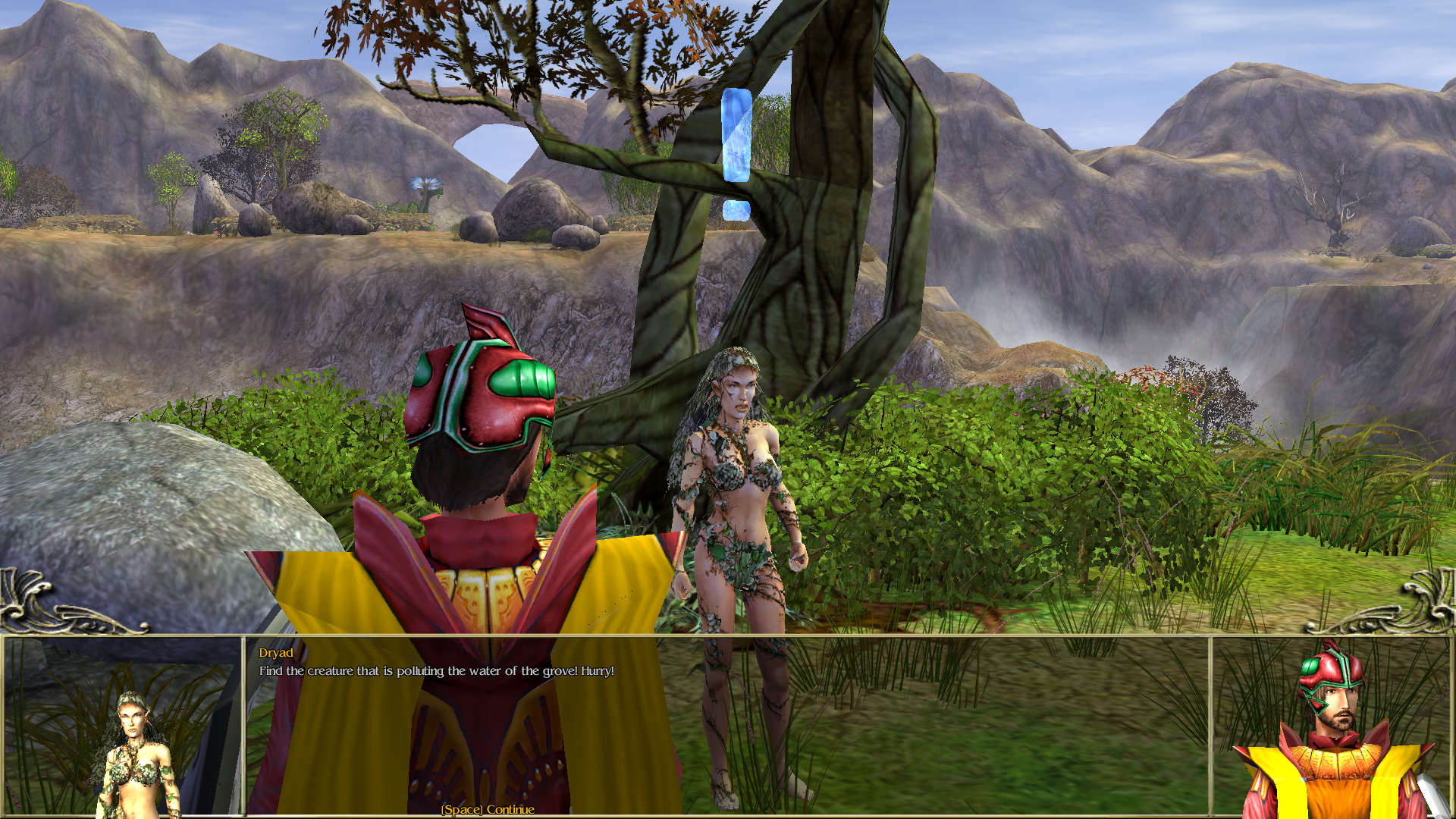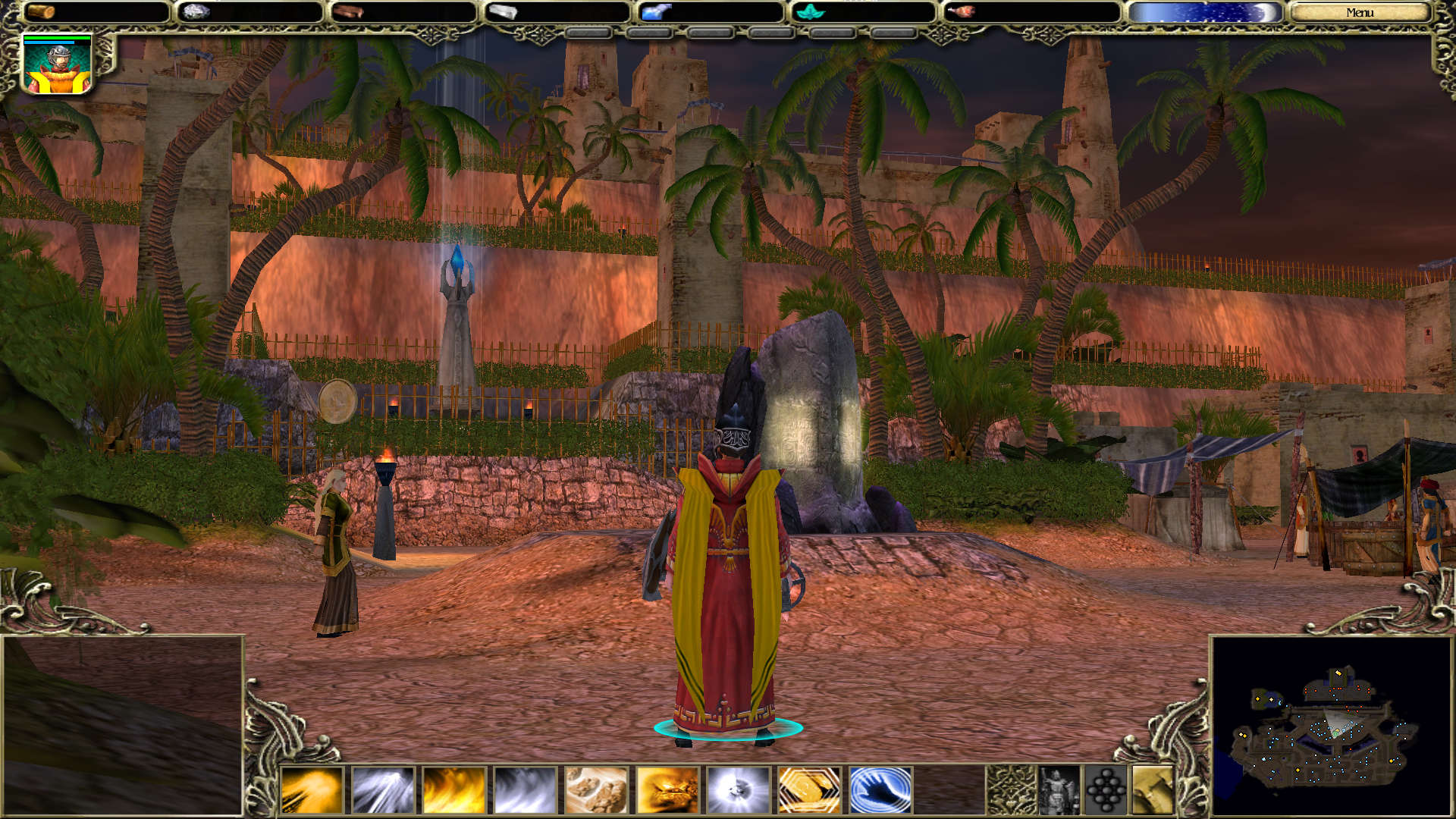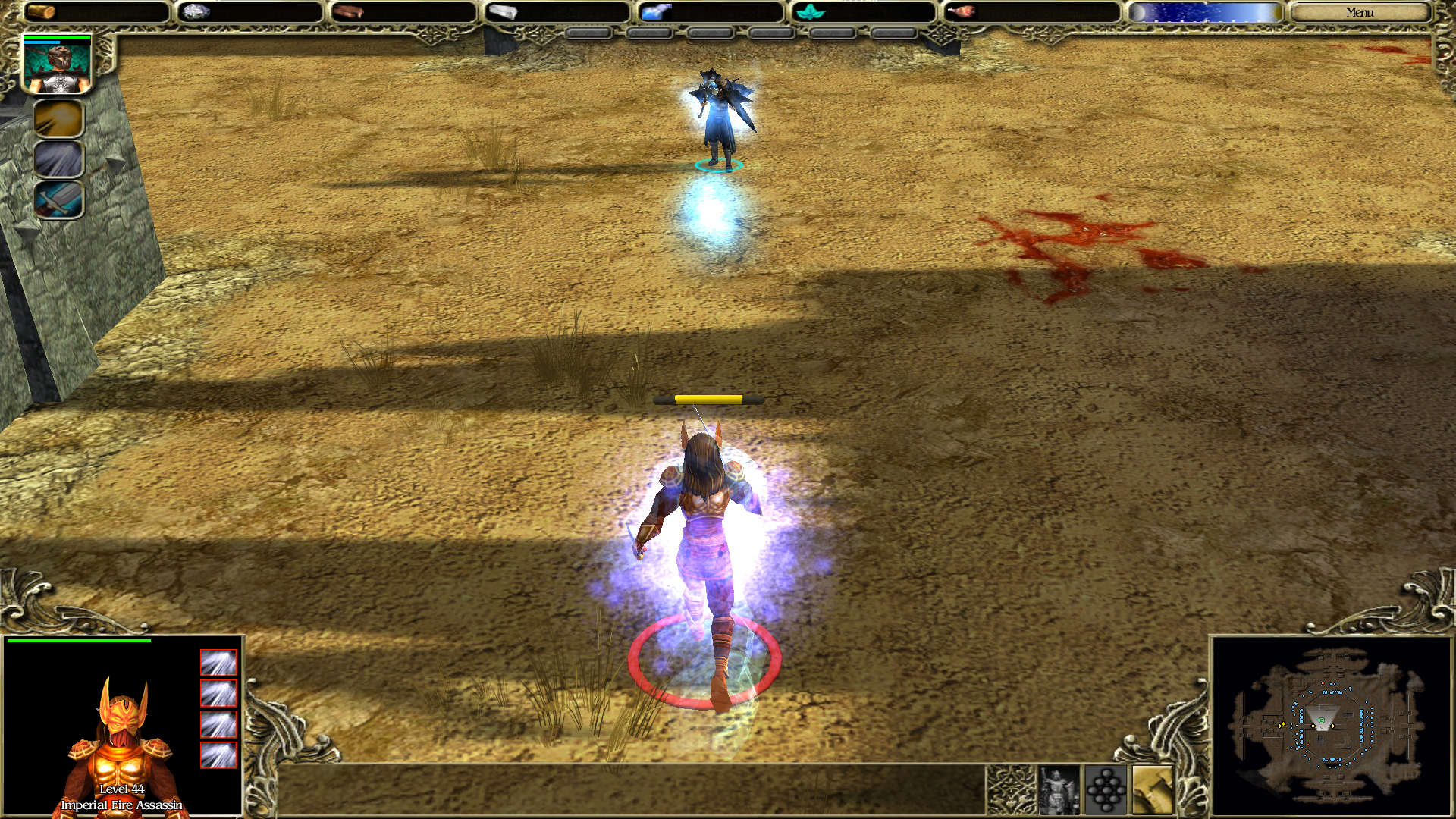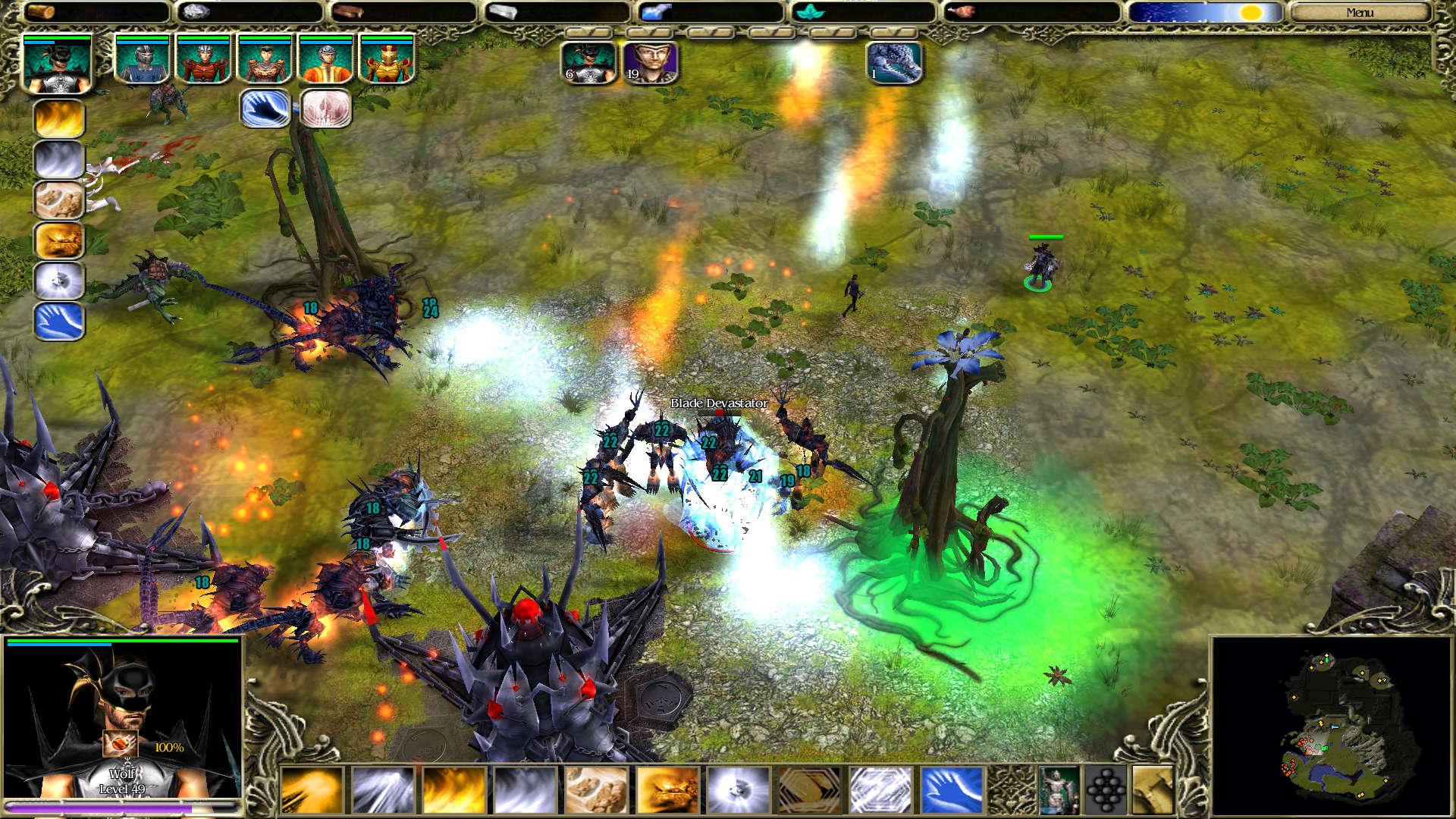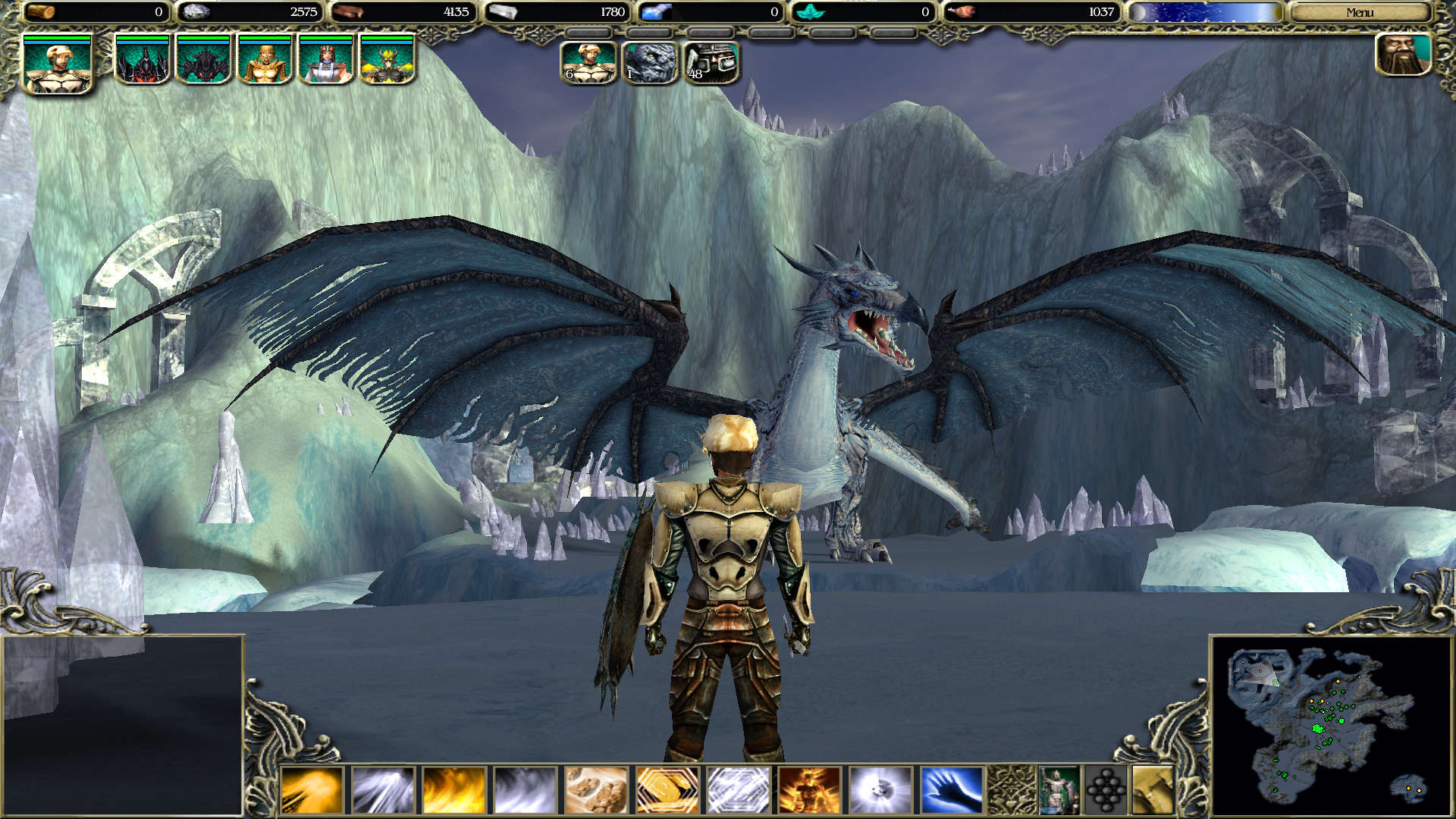Spellforce
I am a big fan of both the RPG and RTS genres. Spellforce is a game that combine the genres, and does it well.
The original game, Spellforce: The Order of Dawn, was released in 2003. It had two expansions, The Breath of Winter, and Shadow of the Phoenix, both released during 2004. These days you can usually obtain the game with both expansions as Spellforce Platinum.
We also have an article on Spellforce 2
Since this game is a mix of two different genres, RPG and RTS, I will go through each of these individually first, and then look at how they come together in this game.
The RPG elements are quite simple, but still offer sufficient variety to satisfy most play styles. At the beginning of the game you create your main character, your Avatar. You can choose either male or female, and then pick from a selection of appearances. Your character has 7 attributes: Strength, Stamina, Dexterity, Agility, Intelligence, Wisdom, and Charisma. With each increase in level, you get a number of points that can be used to improve your attributes according to your wishes. There is a limit to how much you can improve an attribute and this is dependent on your character level. A higher level character can improve attributes further. This means you can't focus on a single attribute, instead you should have two or three primary attributes based on what skills you use.
The skills in this game is placed within categories. The categories are: Light Combat Arms, Heavy Combat Arms, Ranged Combat Arts, White Magic, Black Magic, Elemental Magic, Mind Magic. Each of these categories have a subset of skills associated with them. You need to spend skill points in the main skill before you can learn any of the associated specialized skills. We can look at White Magic as an example. Learning the White Magic skill will not let you cast any spells, but if you have spent a skill point in White Magic, then you can next spend a skill point in any of the associated skills: Life, Nature, and Boons. Learning any of these three skills will let you learn and cast spells. The skill point you put into the main skill is also the limit of how much you can improve the associated skills. So if you have 5 skill points in White Magic, then you could raise any of the three subskills, Life, Nature, and Boons, up to 5 skill levels as well. It is also important to note that each of the main skills have attribute requirements as well. So if you wish to learn White Magic, you need to ensure you increase your Wisdom and Charisma attributes. This system is rewarding you for specializing, ideally in one main skill along with the associated subskills.
Equipment is a vital part of creating a powerful character. A mighty warrior needs weapons and armor, and a powerful mage still needs spells. Spells are learned from scrolls, which, along with most other types of equipment can either be purchased from merchants in towns, or found as loot on defeated enemies and in treasure chests. One of the gameplay elements that I really love in this game is how the RTS sequences are tied directly to this, because you need some specific items in order to field an army.
In this game, you are a Rune Warrior. You can never truly die as long as there is an active bindstone on the current map. You can also use these to travel around the map, and even to different maps, as long as you have already activated them. But being a Rune Warrior, you can also equip other runes. Some runes let you awaken powerful heroes to accompany you. These can only be called at a Hero Monument and you can at most call upon five heroes to accompany you. In addition to this, you can also find Worker Runes, which will let you call in workers from a specific race. You will need a monument of the same race as the Worker Rune in order to summon the workers. On their own, the workers can't build anything. You will need building Plans in order to have your workers build anything. Usually, you will find what you need as you progress through the game, sometimes you can purchase better level runes from merchants if you have the money.
There are six factions available, divided into Light and Dark races. The Light races are the Humans, Elves, and Dwarves. The Dark races are the Orcs, Trolls, and Dark Elves. If you ever have both Light and Dark side armies, they will attack each other and as such it is important to keep them separate. The same goes for most NPC's, if you have an Orc army and bring it to a Human NPC town, your orcs will fight the humans. This is something you need to be aware of if you find yourself with access to both Light and Dark race monuments on a map, although it is a rare occurrence.
If you have a worker rune, a worker monument of the same race, and building plans, then you got all you need to start constructing a base. Each race needs either wood or stone, or both, in order to construct buildings. Certain combat units can also be created with these basic resources, but most races will need Iron to make more advanced troops. There are also some special resources that are required to make the most advanced troops. Most races only need one of the special resources, although the Trolls don't need any special resource. Then you have the Dark Elves that need two of the special resources. The special resources are Aria, Lenya, and Moonsilver. There is one last resource, food, which has a slightly different purpose to the other resources. All races require food, and it serves two purposes. You need food in order to upgrade your maximum army size. Furthermore, you need to have food, and a constructed Food Store for your units to be able to heal and regain mana out of combat. This only applies to the units you create from the worker monument, which includes both the workers and army units. Food is a special resource because several races can generate food themselves from certain buildings and don't need to rely on resources on the map.
Resources in this game is actually infinite. When a resource field is used up, it will slowly regenerate. This happens very slowly, but for a patient player it means you have no limit to what you can make as long as you have at least one field of each resource. Even trees will regrow after being chopped down, although this is a slow process. Still, I would not suggest to rely on a small resource field for a resource you want to use a lot of, because the regeneration is extremely slow. In most cases, you will want to adapt your plan according to how much is available of a resource without the regeneration. You can always expect to get a few hundred extra out of a field from the regeneration, but a thousand or more is becoming unrealistic because of the time you would need to wait.
The different races have troops with different strengths and weaknesses. Elves are exceptional long range combatants with some useful magic units, but they lack strong close combat troops. Dwarves have very strong close combat troops, but lack long range. Only through an upgrade can one of their troops attack from a distance. Humans are more well rounded, having both ranged, close combat, and magic units. Orcs lack normal ranged units, but have both close combat and magic units, as well as some units that provide combat bonuses to the army. Trolls on the other hand only have close combat and ranged troops, but they are very strong. Lastly there is the Dark Elves, with a strong focus on magic troops. It is an enjoyable experience the first time you try out a new race, and try to learn what unit combinations work well. Each race has some units that I generally consider useless, but might still be somewhat useful early on before you can afford the more powerful units. Each of the six races also have a Titan, which is a unique and very powerful unit. The Titan is a very powerful addition to your army, and can generally soak up a lot of damage. Depending on the situation it might be useful to have the Titan defend your base, or support your army.
This game is designed quite different compared other RTS games, meaning that your enemies do not manage a base in the same way as you. Enemies do not harvest resources and don't produce units normally. Instead, within enemy bases there will usually be one or several spawn points. These spawn points will spawn increasing number of enemy units as time goes on. The only way to disable the spawn points is to destroy the nearby enemy structures. Killing enemy units will give you experience, which also means that you generally don't want to rush the enemy. You will gain much more experience by holding back and just defending against attacks for a while before you attack. My favorite strategy is to build a wall of towers and just wait it out. Enemy spawns will keep increasing, but if you are patient and keep holding for an hour or so, they will eventually dwindle down to just a single enemy unit at a time. That's usually when there is no more useful experience to be gained and you might as well destroy the enemy. However, on certain maps I will usually take out some enemy bases early, either to limit the number of chokepoints I need to defend, or simply make it easier to actually survive the enemy hordes.
As mentioned early in the article, the game consists of three campaigns. The original campaign is called The Order of Dawn, the first expansion is named The Breath of Winter, and the last campaign is the Shadow of the Phoenix. For the first two, you play as different characters. However, in Shadow of the Phoenix you can import your character from either of the two previous campaigns. Depending on which character you wish to start with there will be some differences. The first map is very different and you will notice a lot of dialogue differences. I have always loved games where you can import your character from a previous entry, so this was something I really enjoyed. The story of all campaigns tie together and there are several recurring characters. All campaigns have a good mix of some pure RTS maps and some pure RPG maps, while other maps include both types of gameplay.
There is one additional game mode that I find to be very enjoyable, the Free Game mode. In this mode, you create a character and then select a map to play. Each map will list the suggested character levels for playing it, so you don't need to worry about taking on something too difficult. Furthermore, you can replay maps if you want to level up more before the next map. There is also a town map, which simply features a big town with lots of merchants. This game mode can also be played cooperatively with a friend, which adds a lot to the experience.
If you look at this game as only an RPG, then it will not measure up to many other titles. The same goes for the RTS elements as well. They are rather basic and don't really require much more strategic thinking other than survive until you have a large enough army. However, it is the combination of these genres that make this game so good. I just love running around my base with my avatar. In the early stages of base building, you will only have your avatar to defend. It really is satisfying to keep your town safe personally, and then later sit back behind towers or your army. The game world along with the gameplay makes it very immersive, and I easily find myself losing track of time as I play this game.
The amount of content within this game is immense, and you will be hard pressed to get a better value for your money. But even if we ignore all that, the gameplay itself is so good that I consider this game to be among my esteemed favorites. I have replayed it multiple times over the years and I know I have not played it for the last time. If you are interested in a good fantasy setting with both RPG and RTS elements, I strongly urge you to look into this game. The graphics might be a bit dated because of the age of the game, but I still consider it to be the best in the series.
Since I love this game so much, here are a few extra screenshots to help convince you to get this game:
Categories: Role Playing Games, Strategy, Real Time Strategy, Fantasy
You need to Log in to comment.
If you don't have an account, then feel free to Create an account
